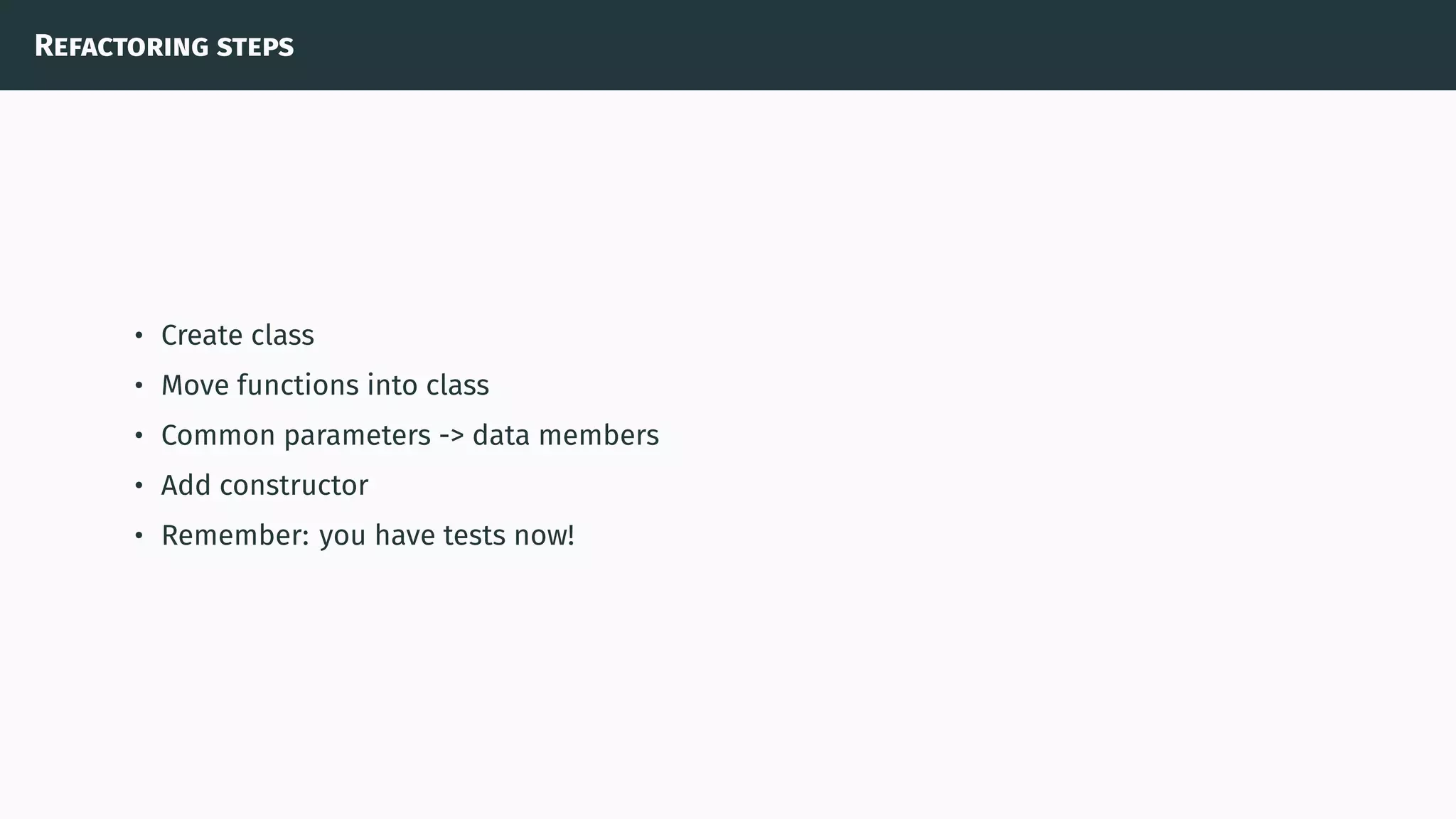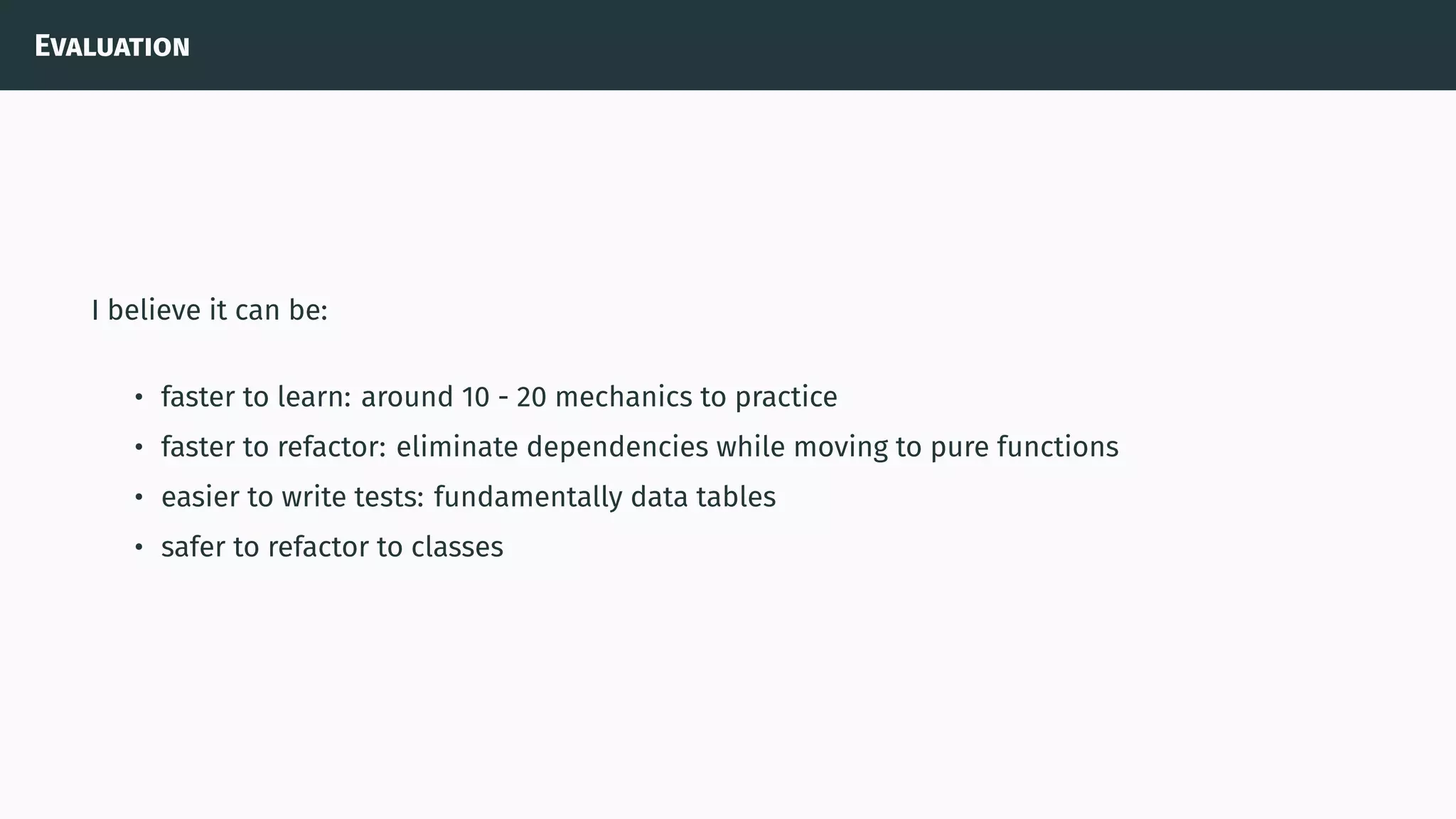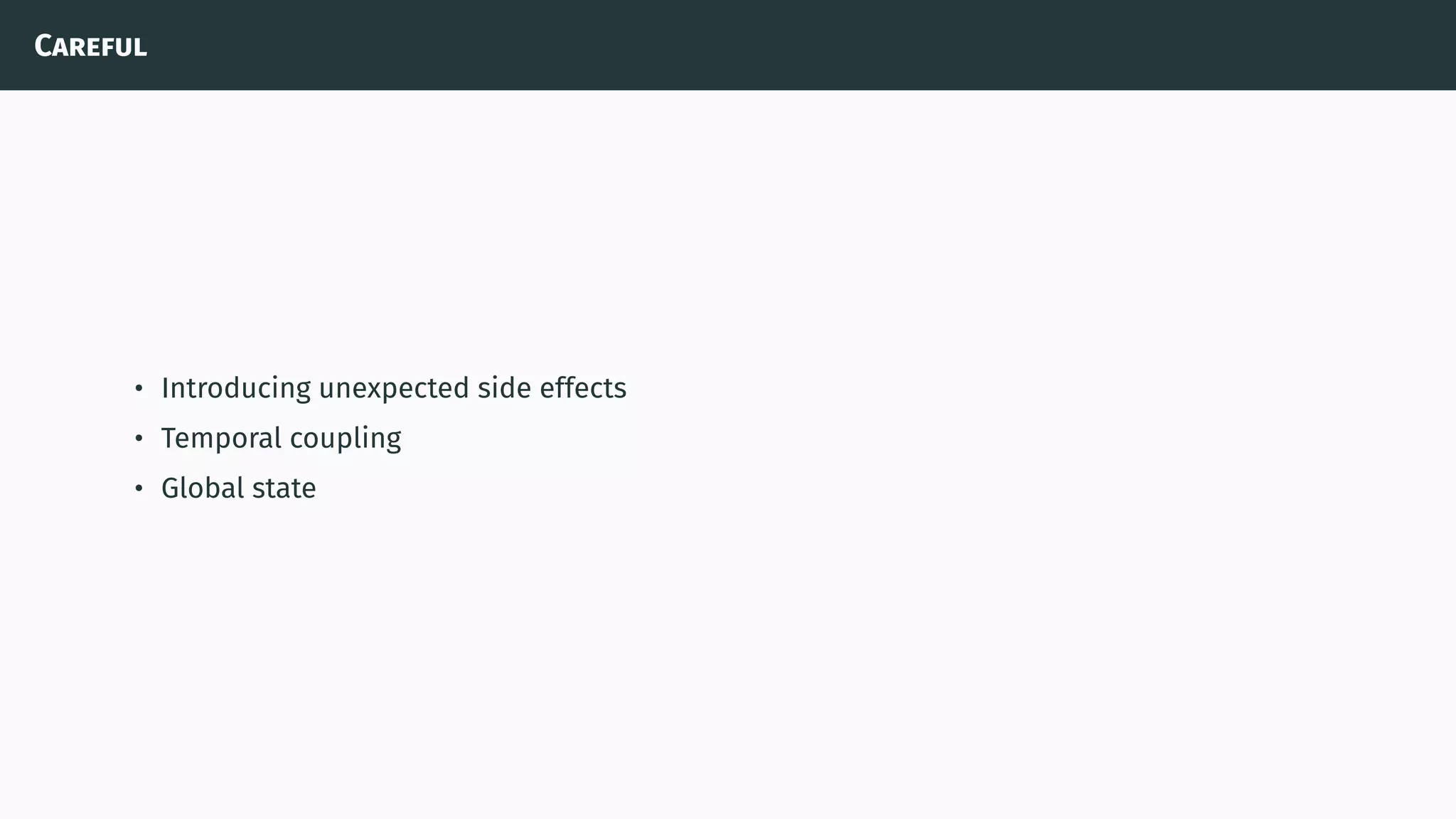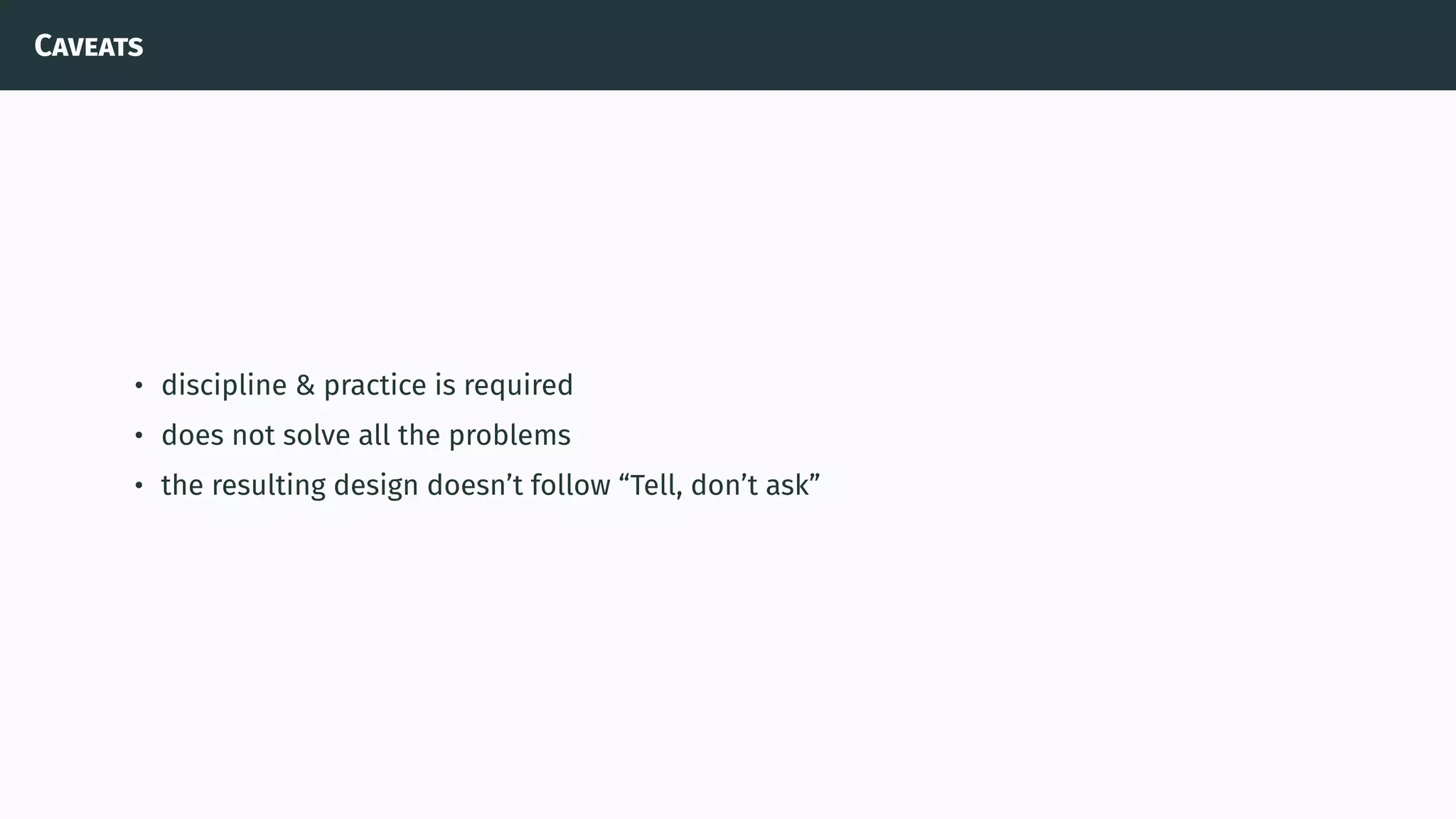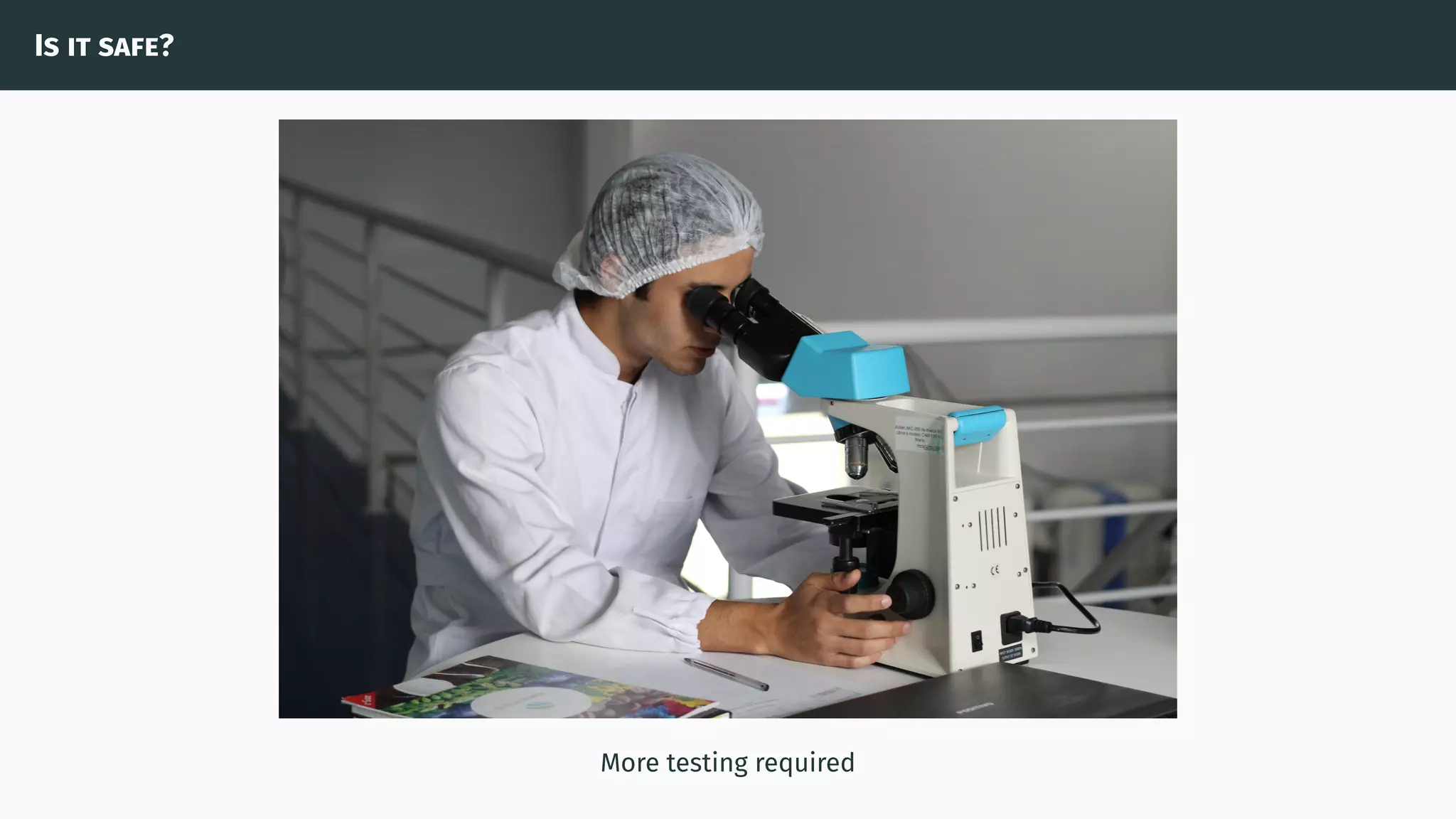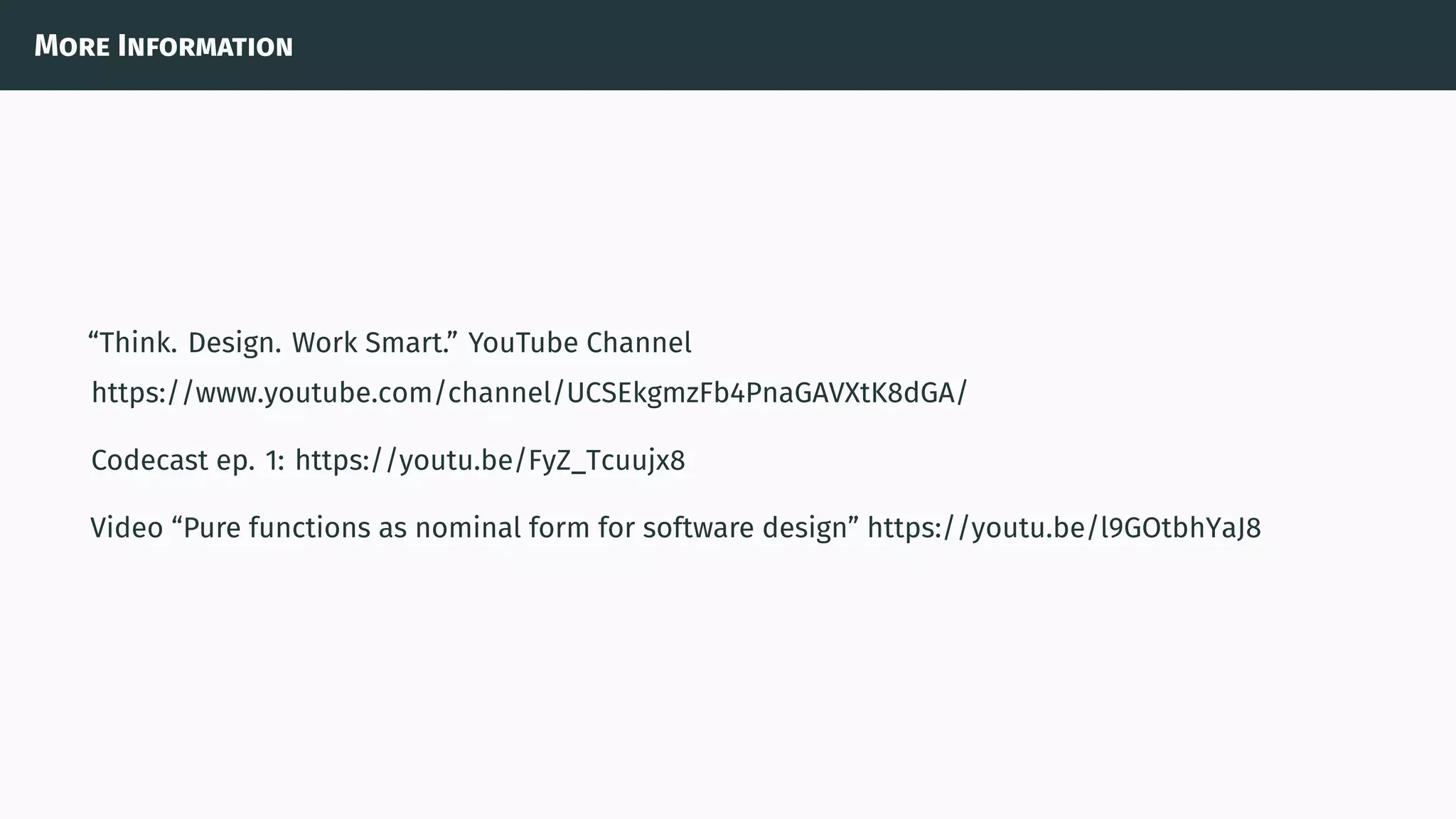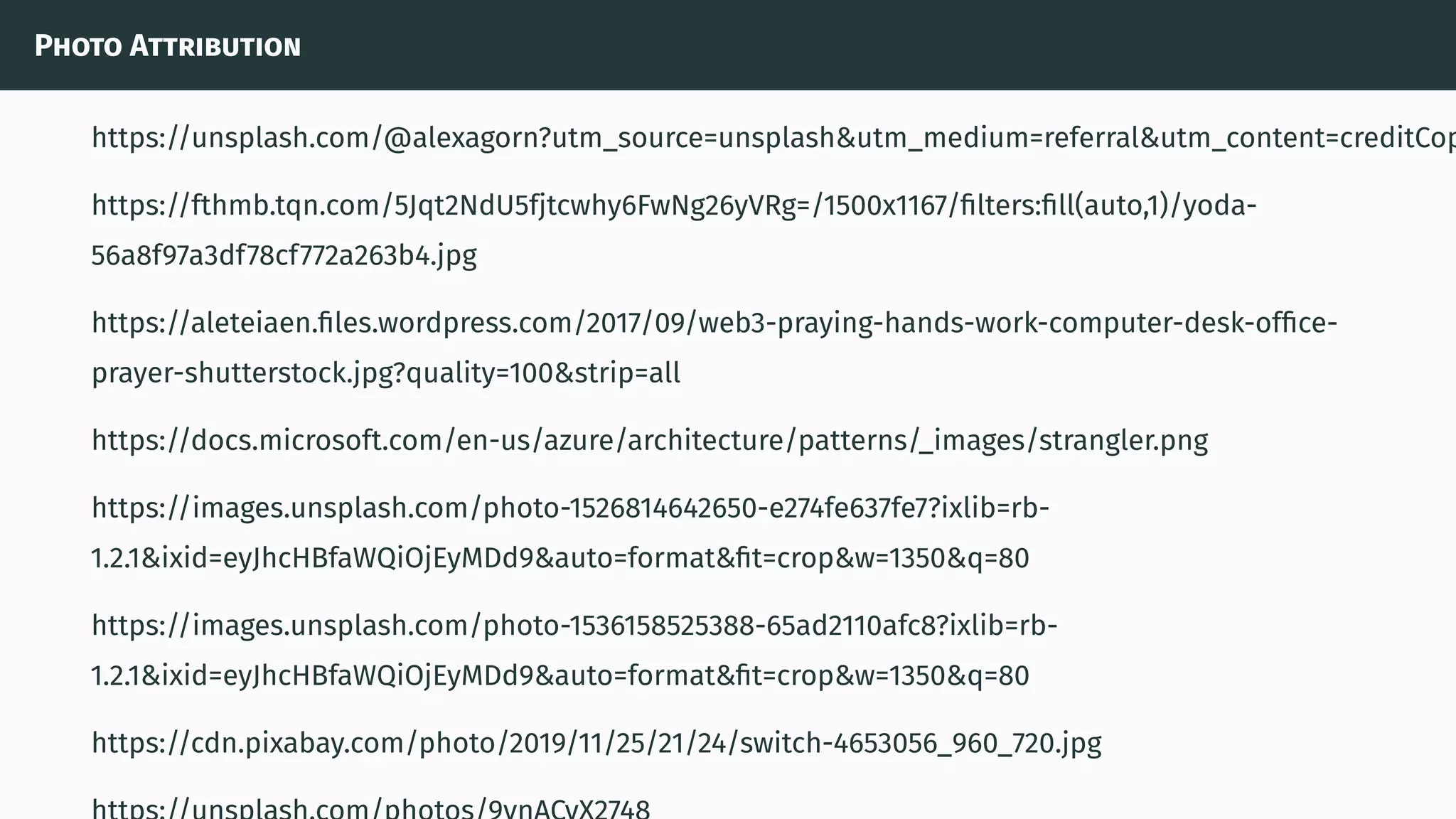The document outlines a method for refactoring legacy code using pure functions, emphasizing the benefits of reducing dependencies and increasing testability. It details the steps of converting existing code to pure functions, testing these functions, and then transitioning to classes, while critiquing traditional methods that are often time-consuming and require rare skills. Finally, it highlights the potential pitfalls of the new method and encourages disciplined practice in software design.


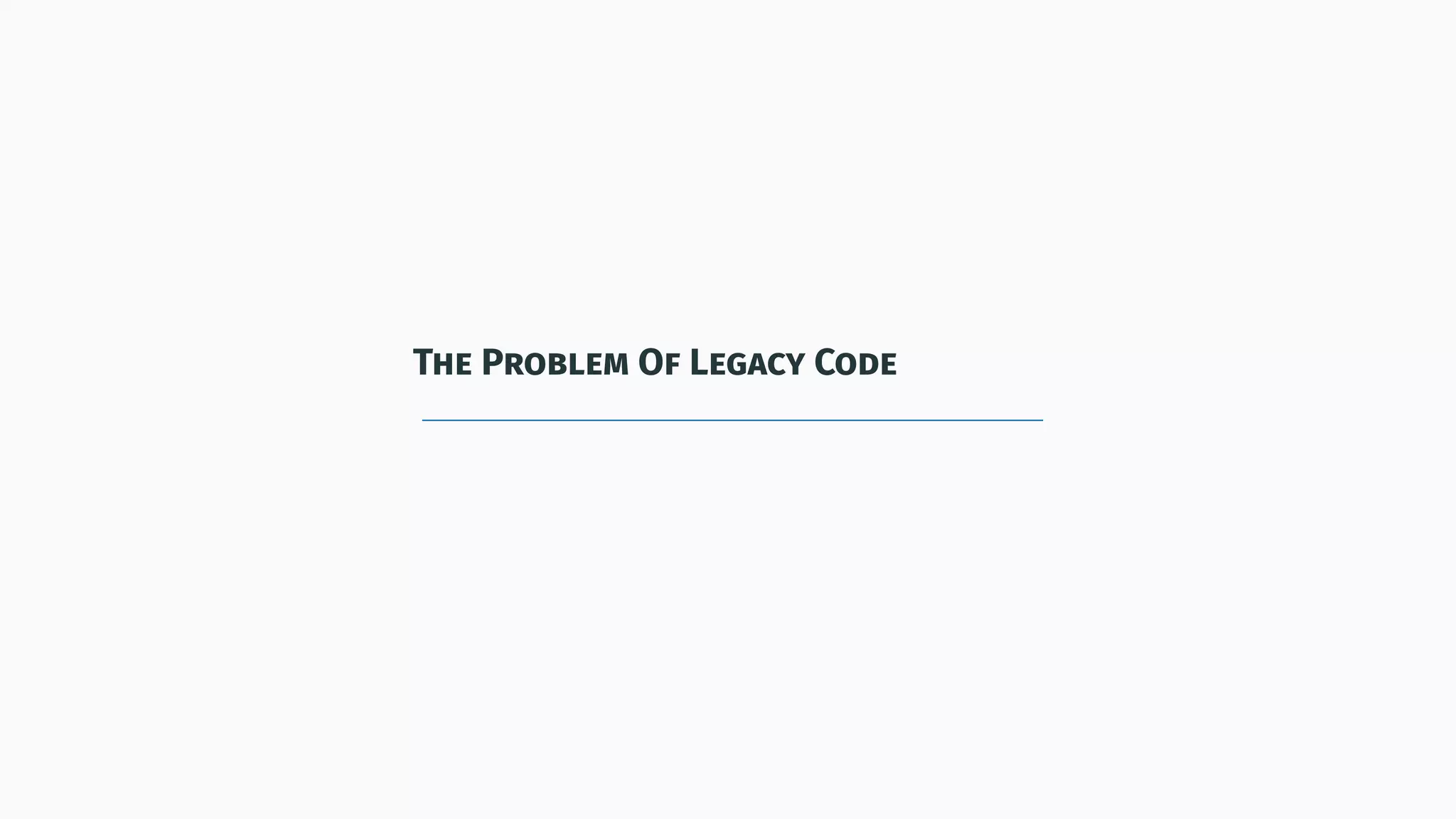
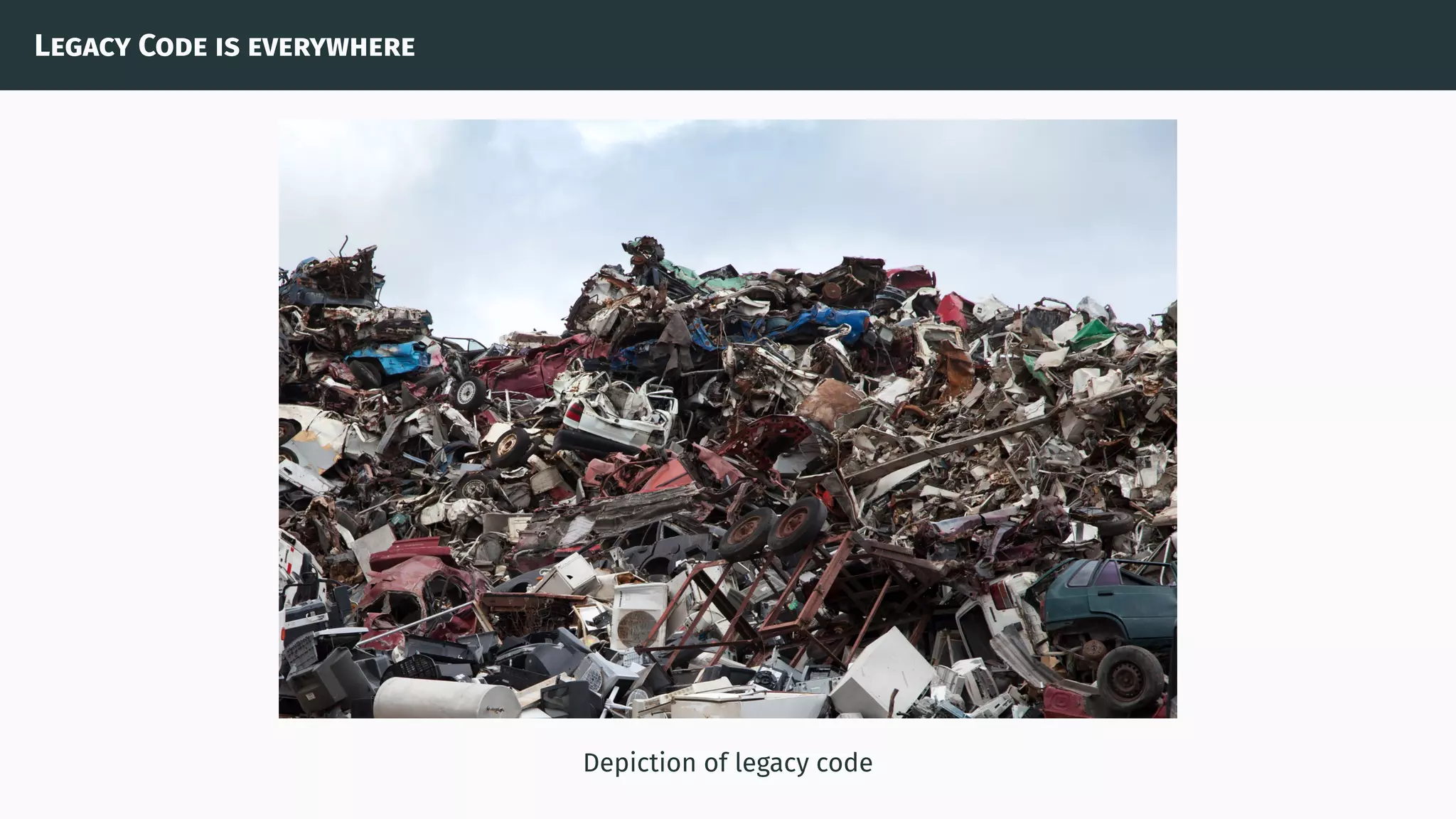
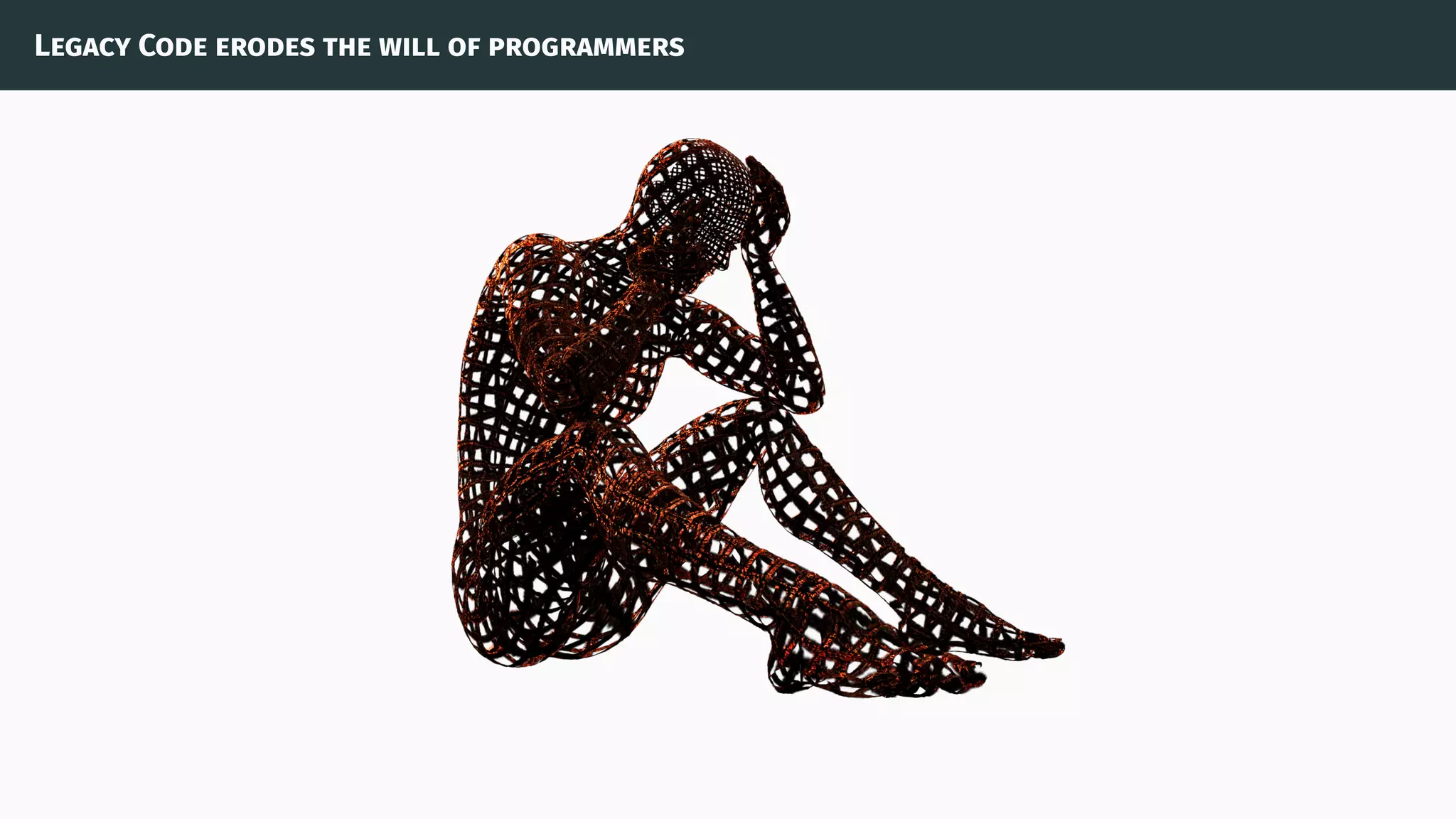
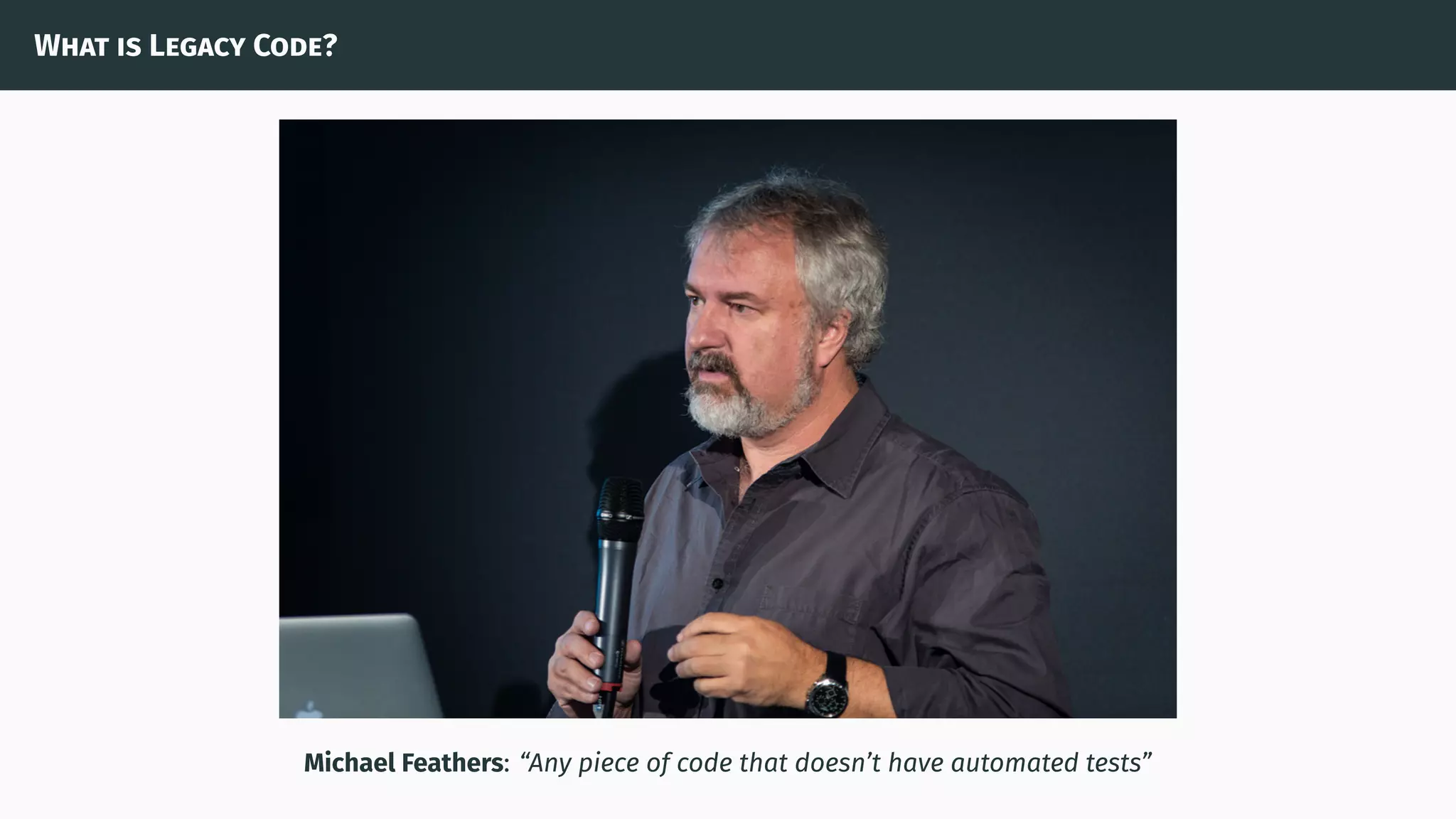
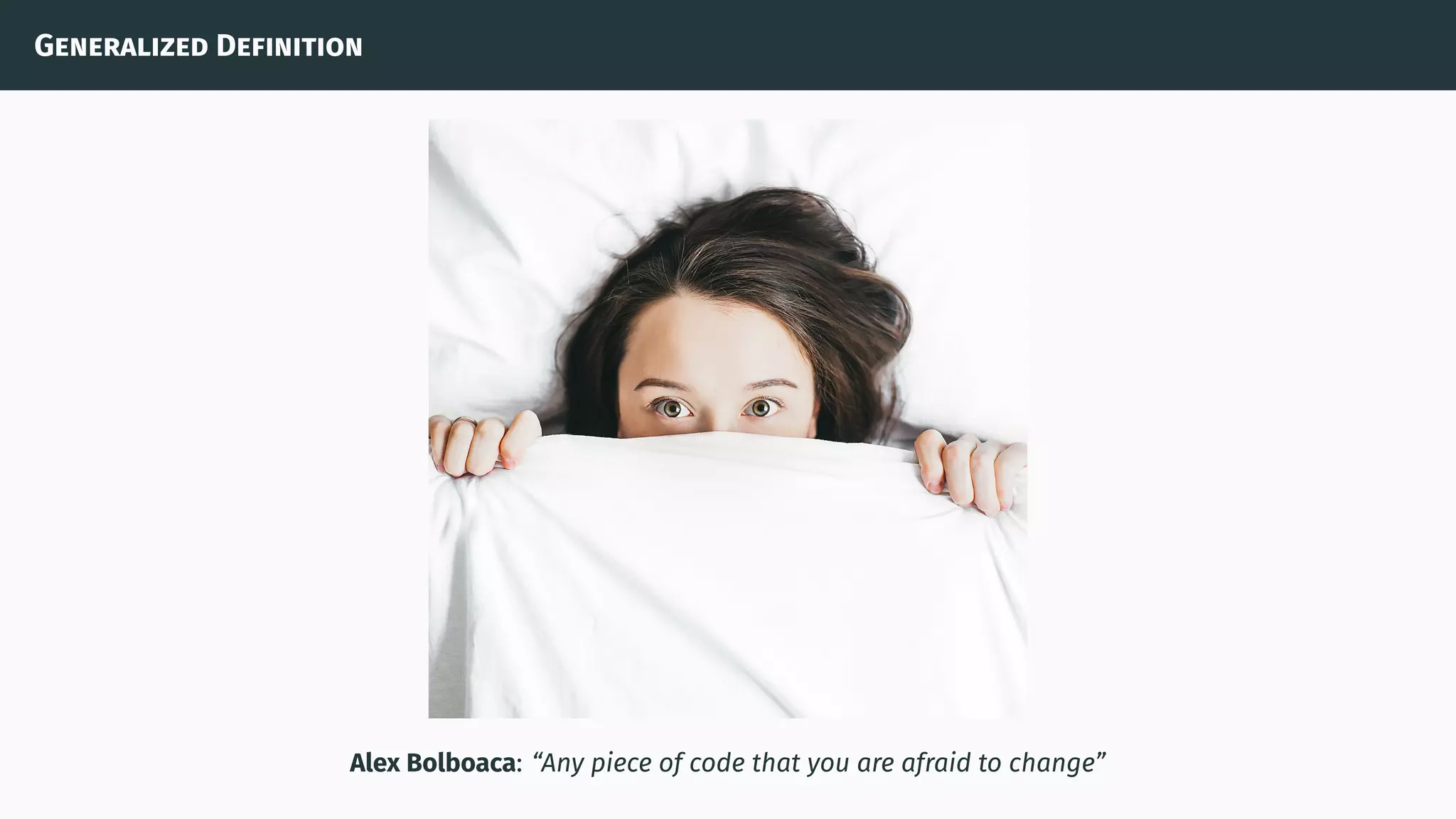
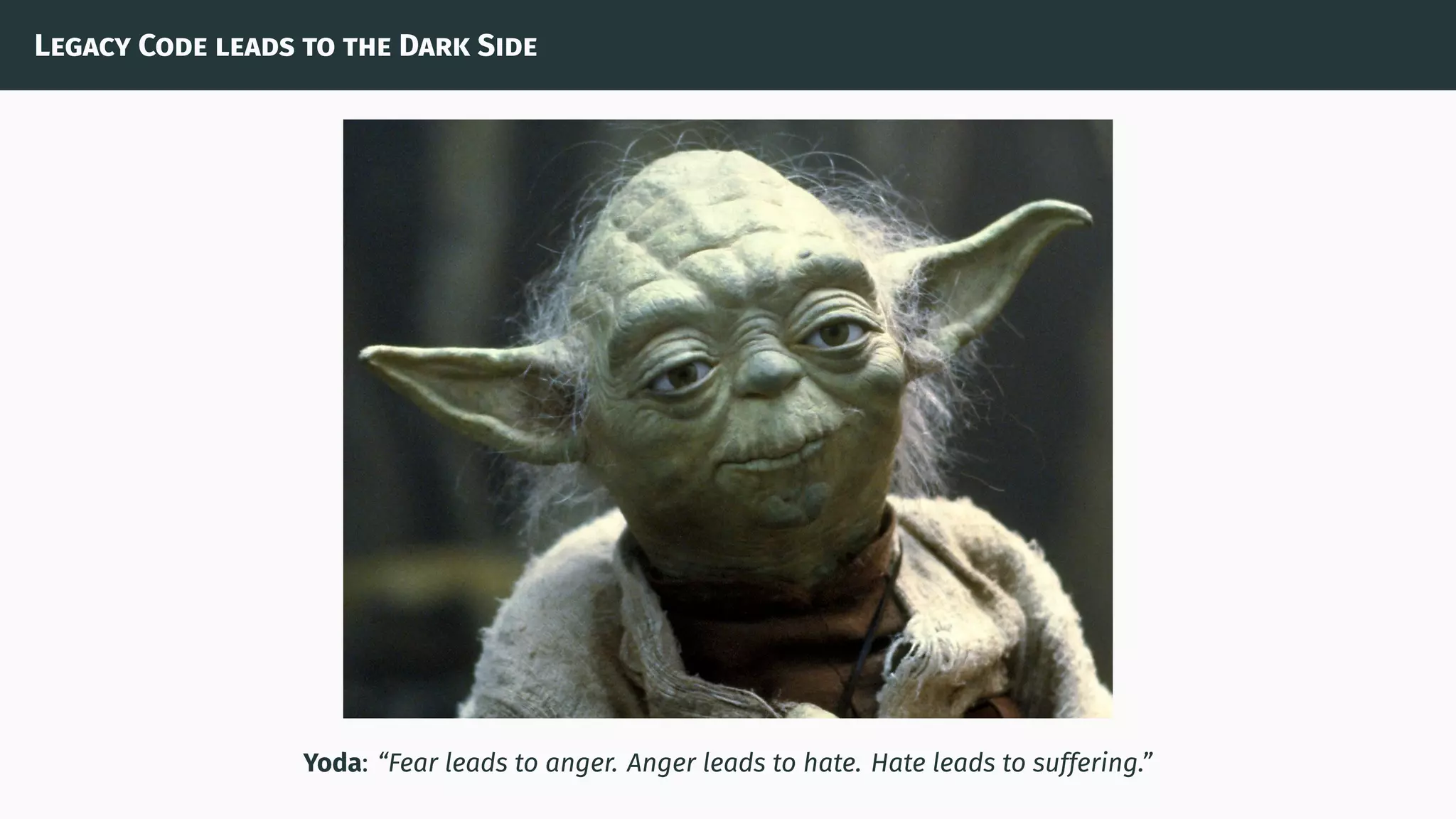


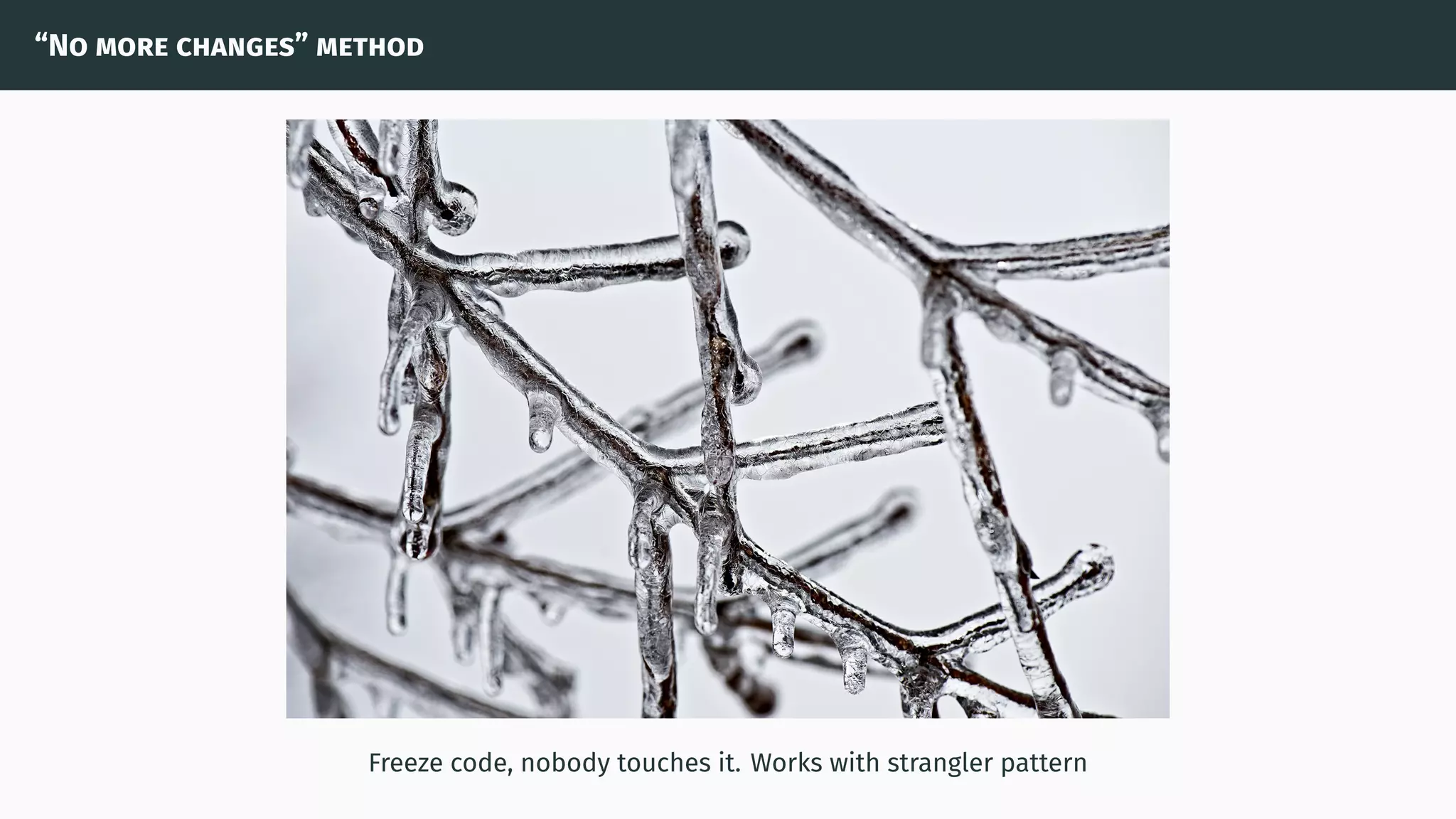
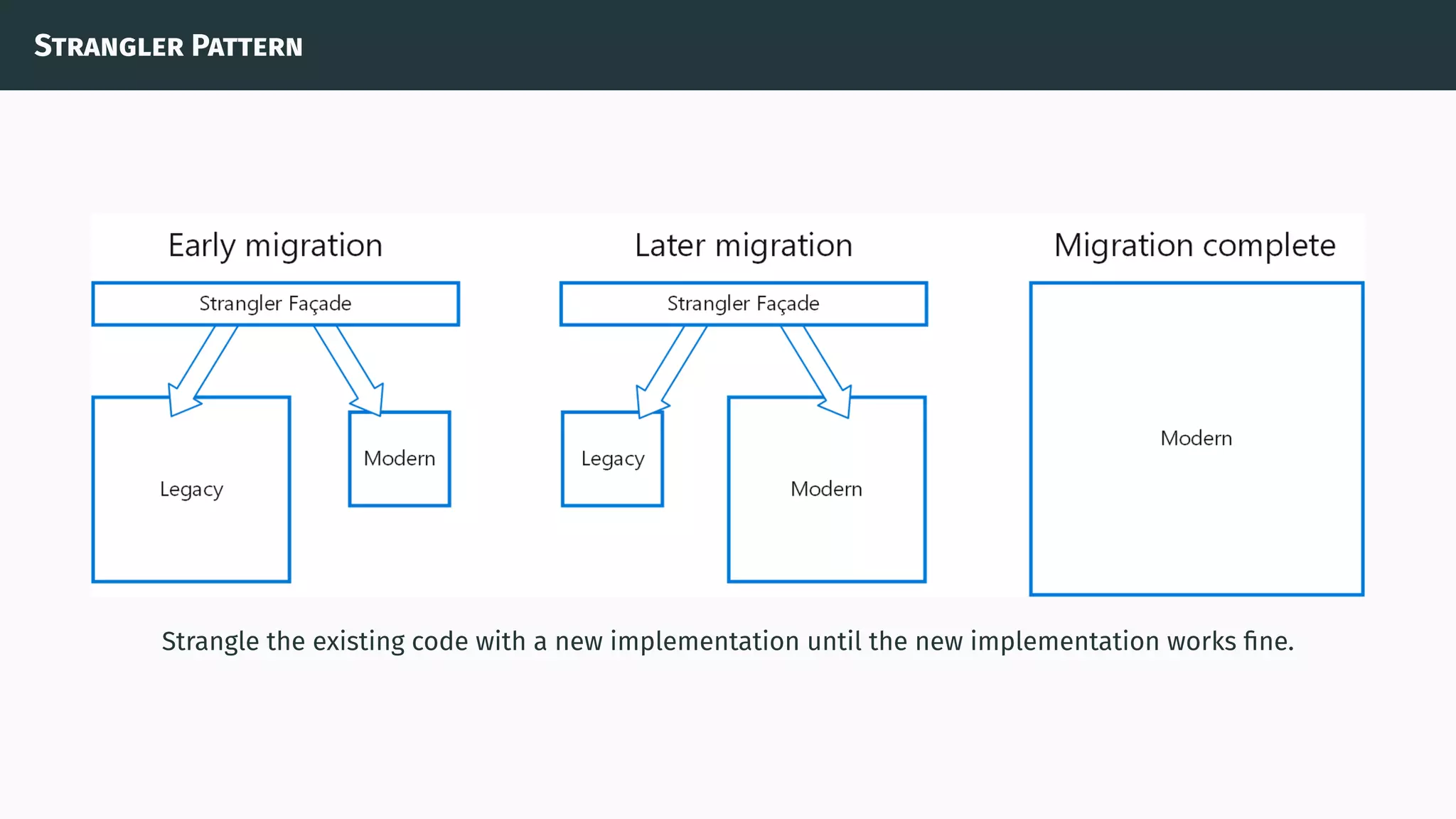
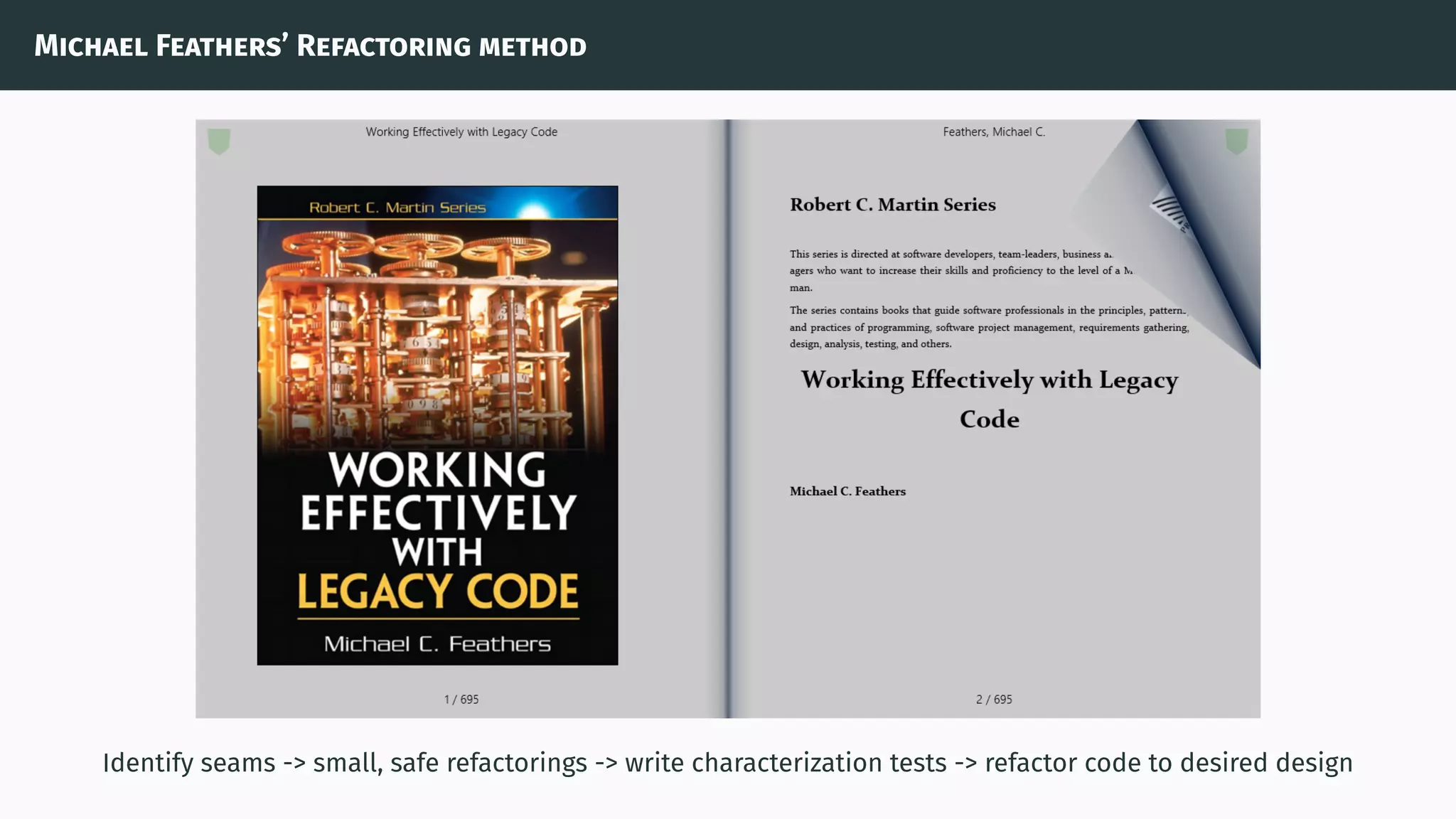
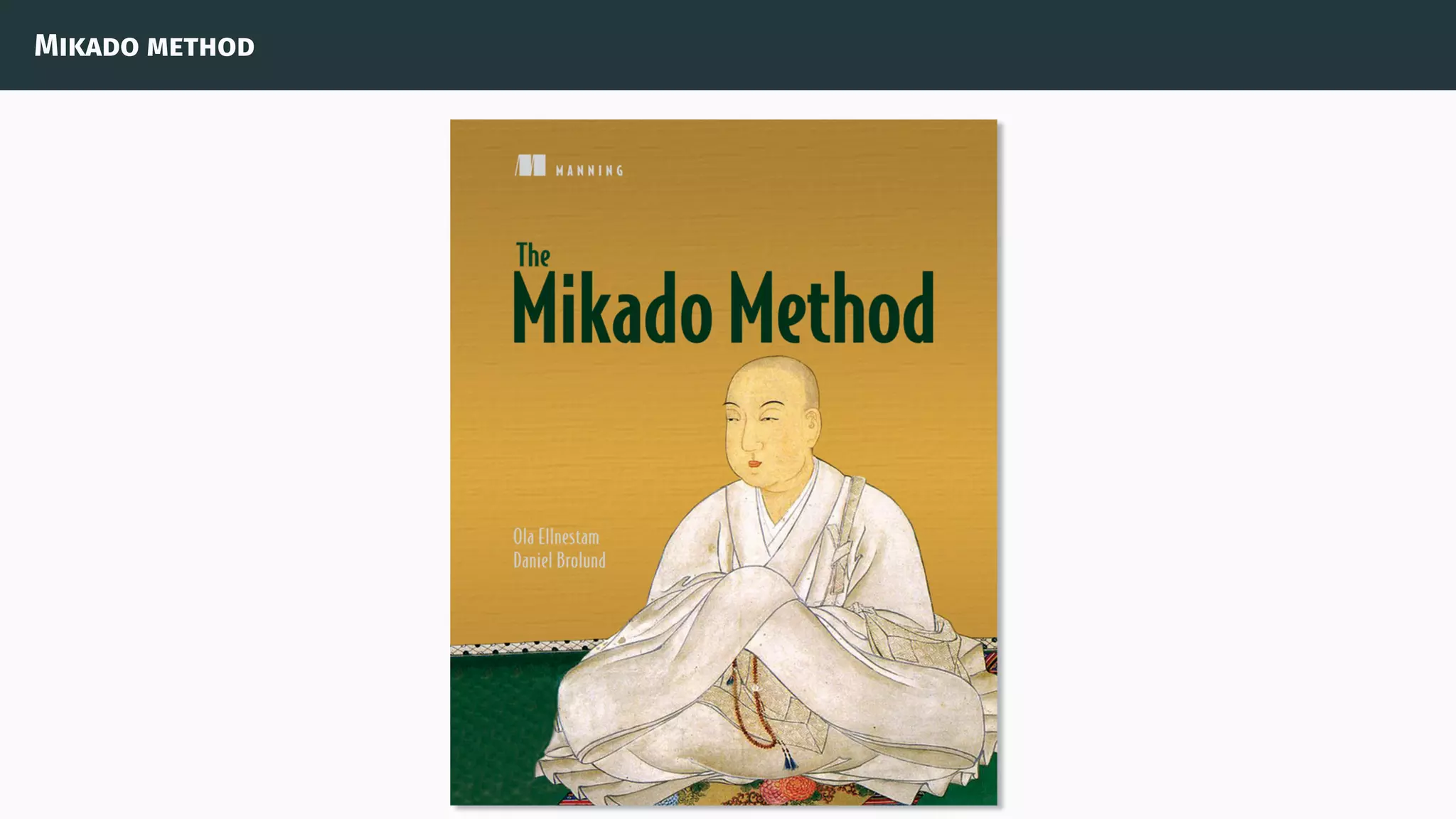

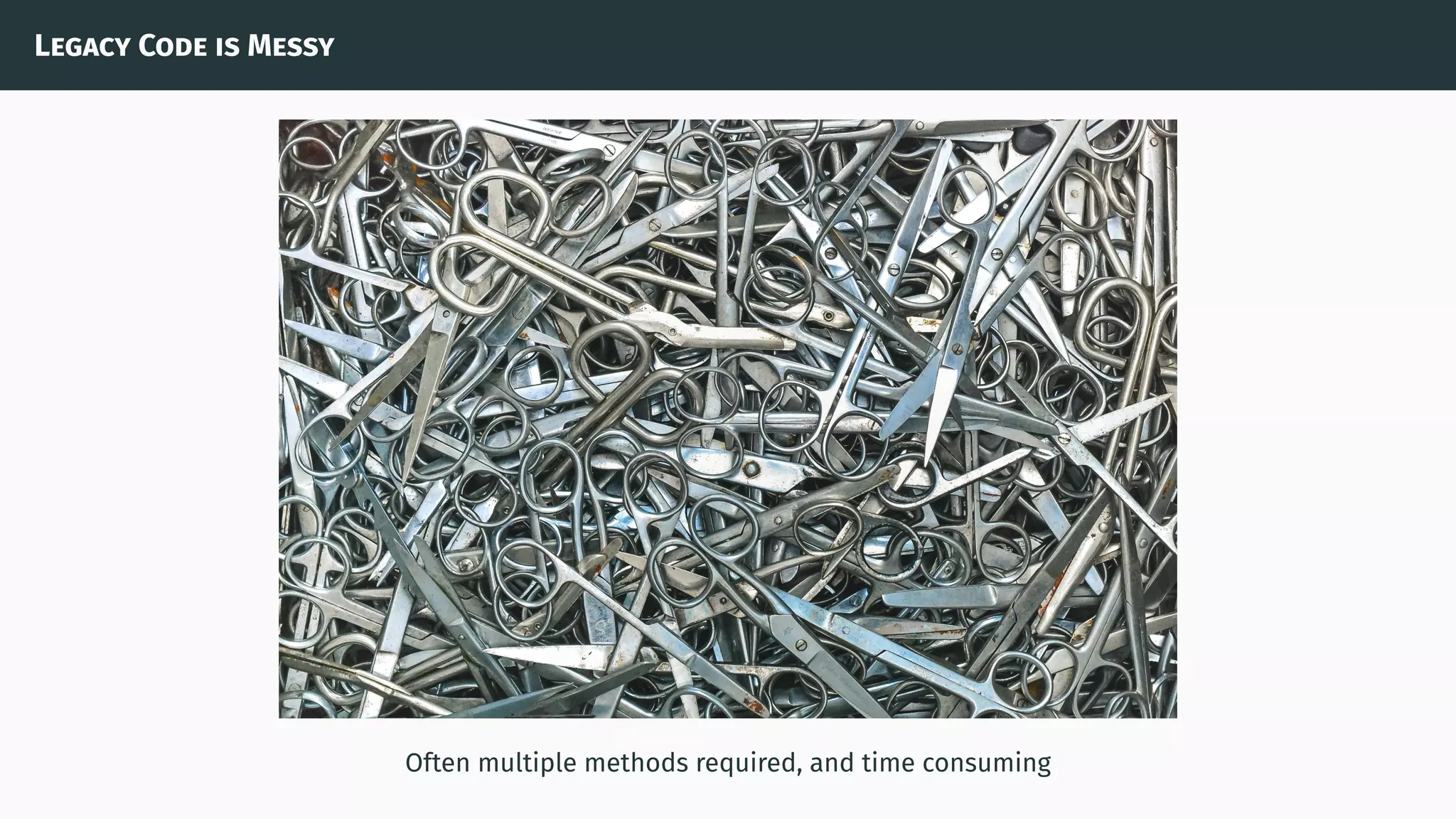
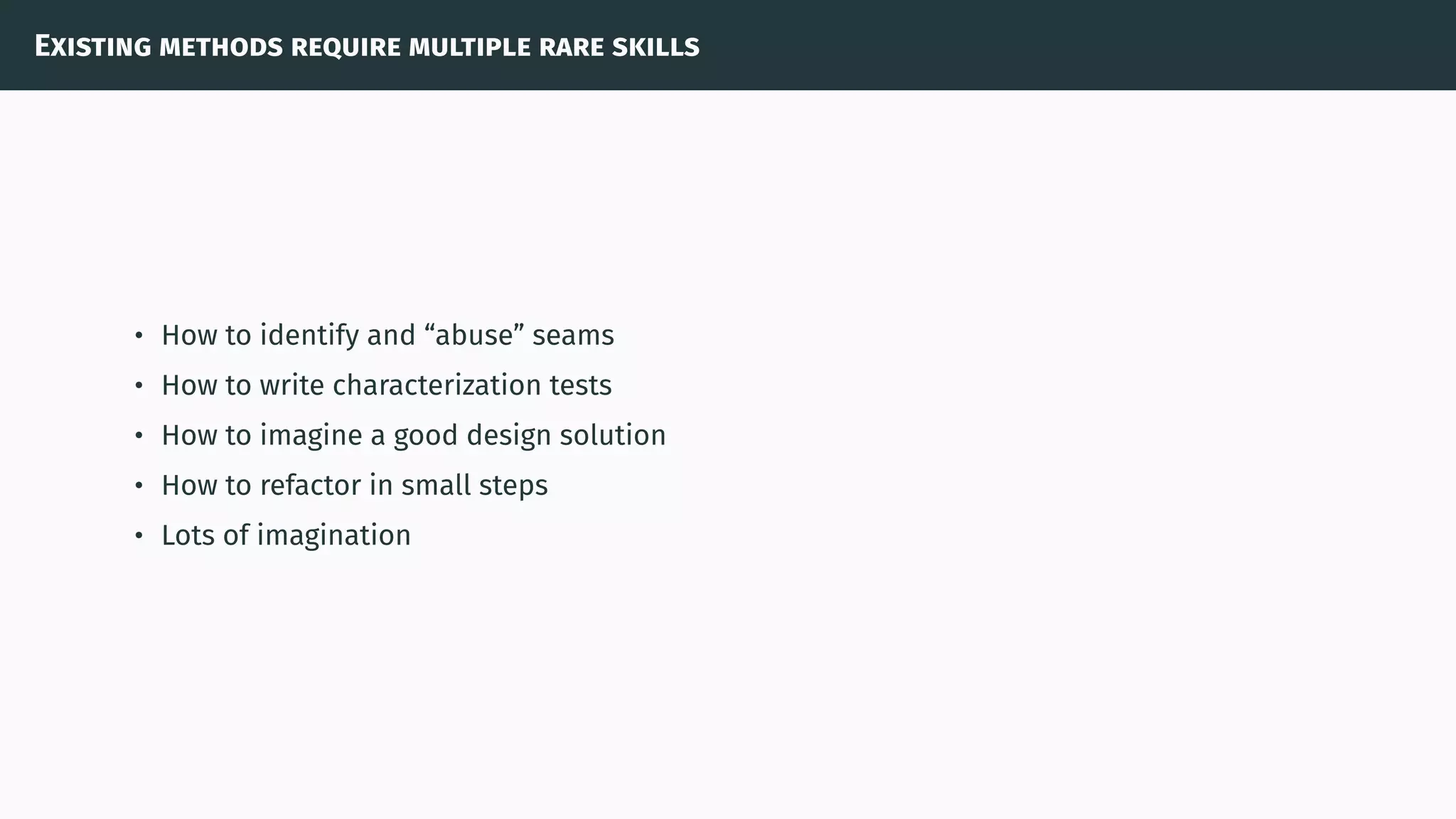

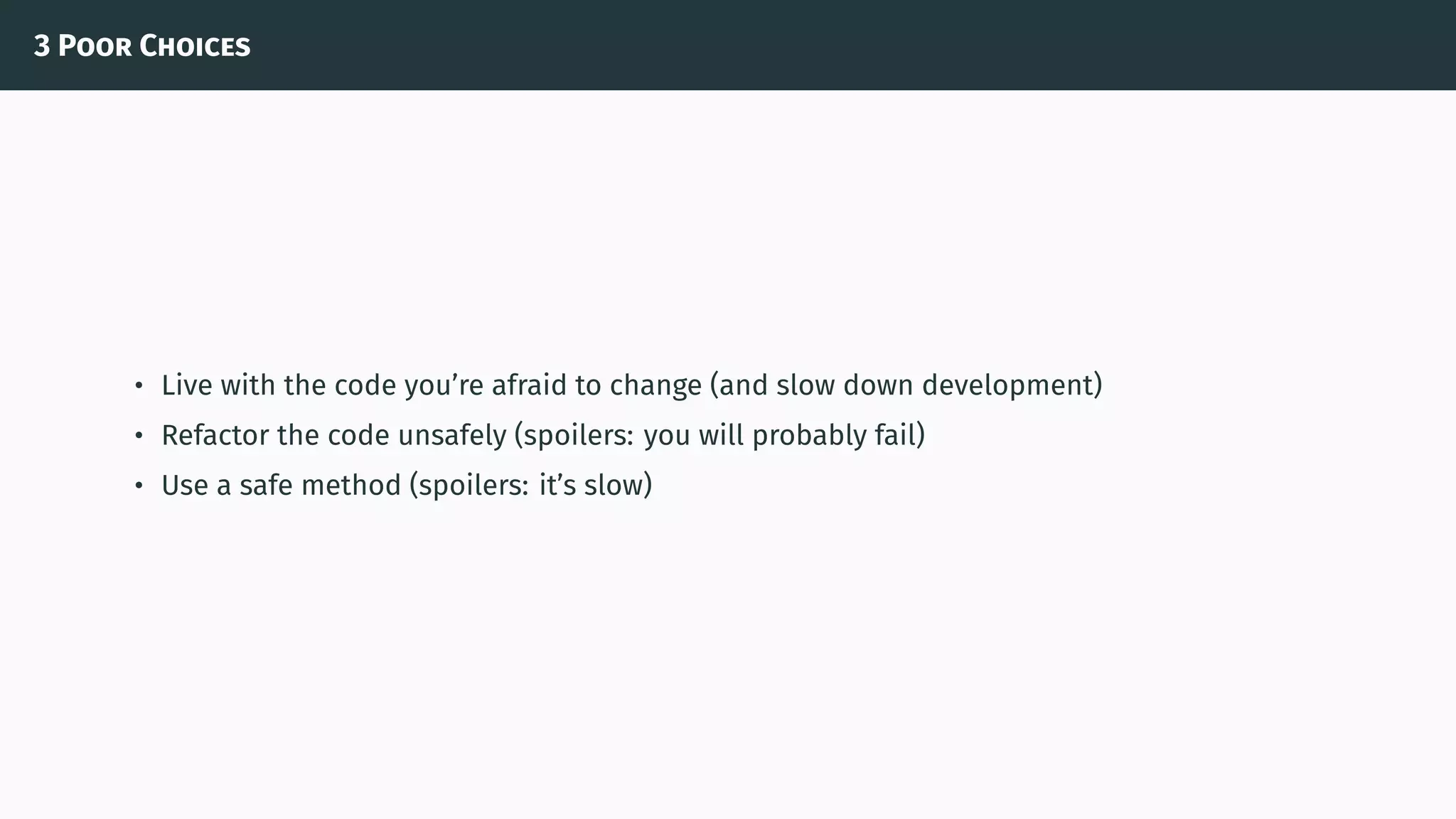
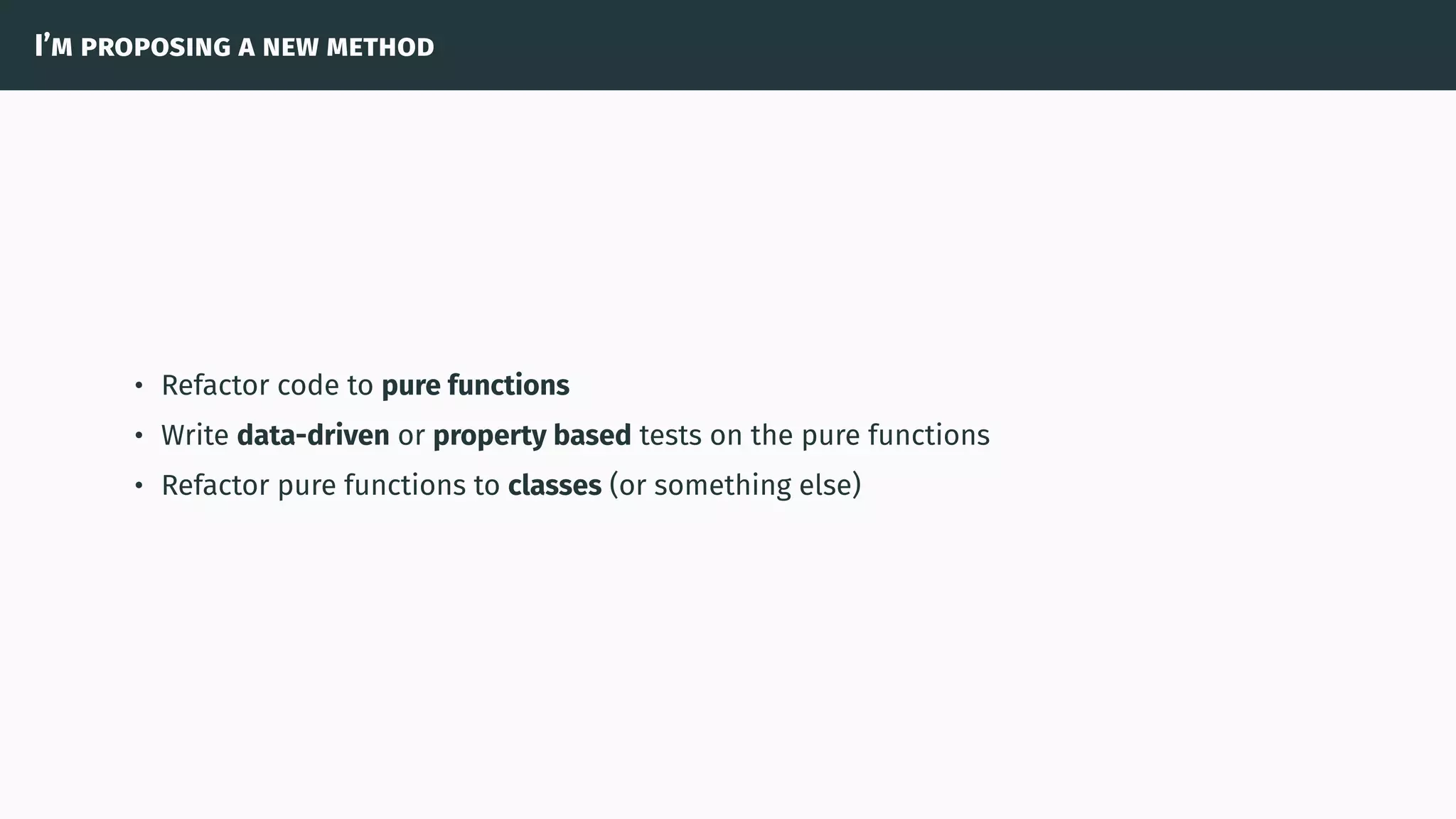
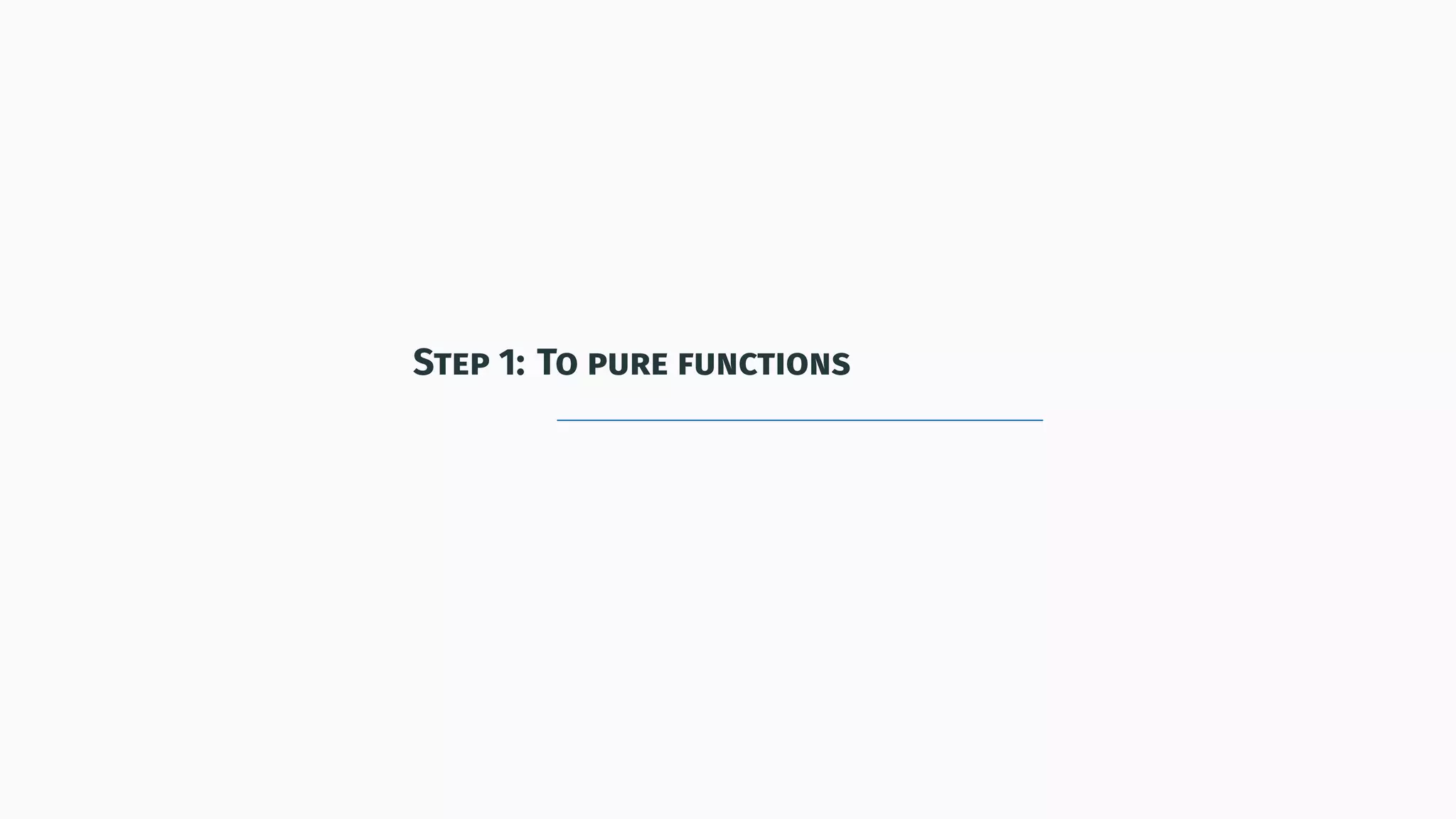
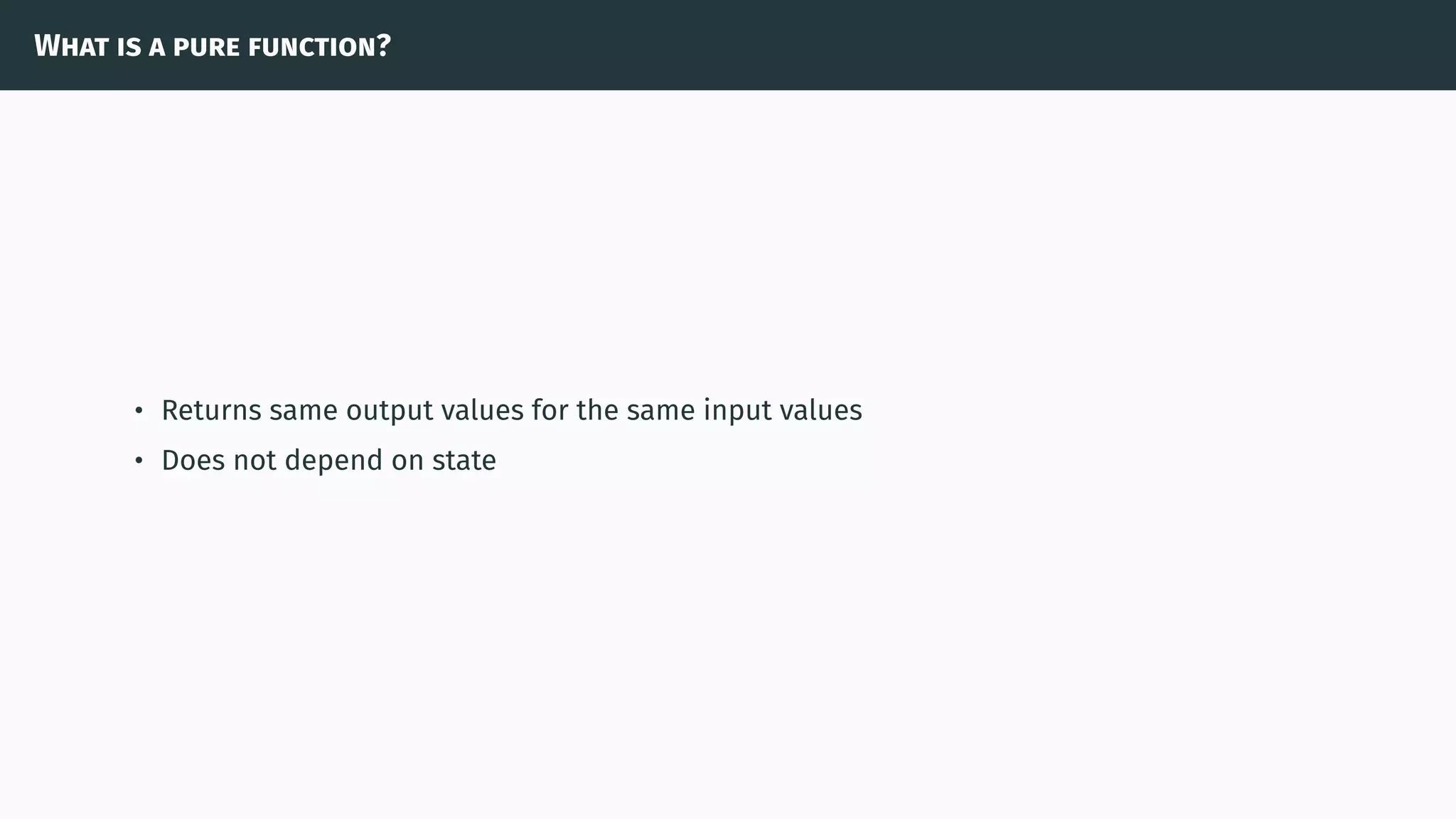
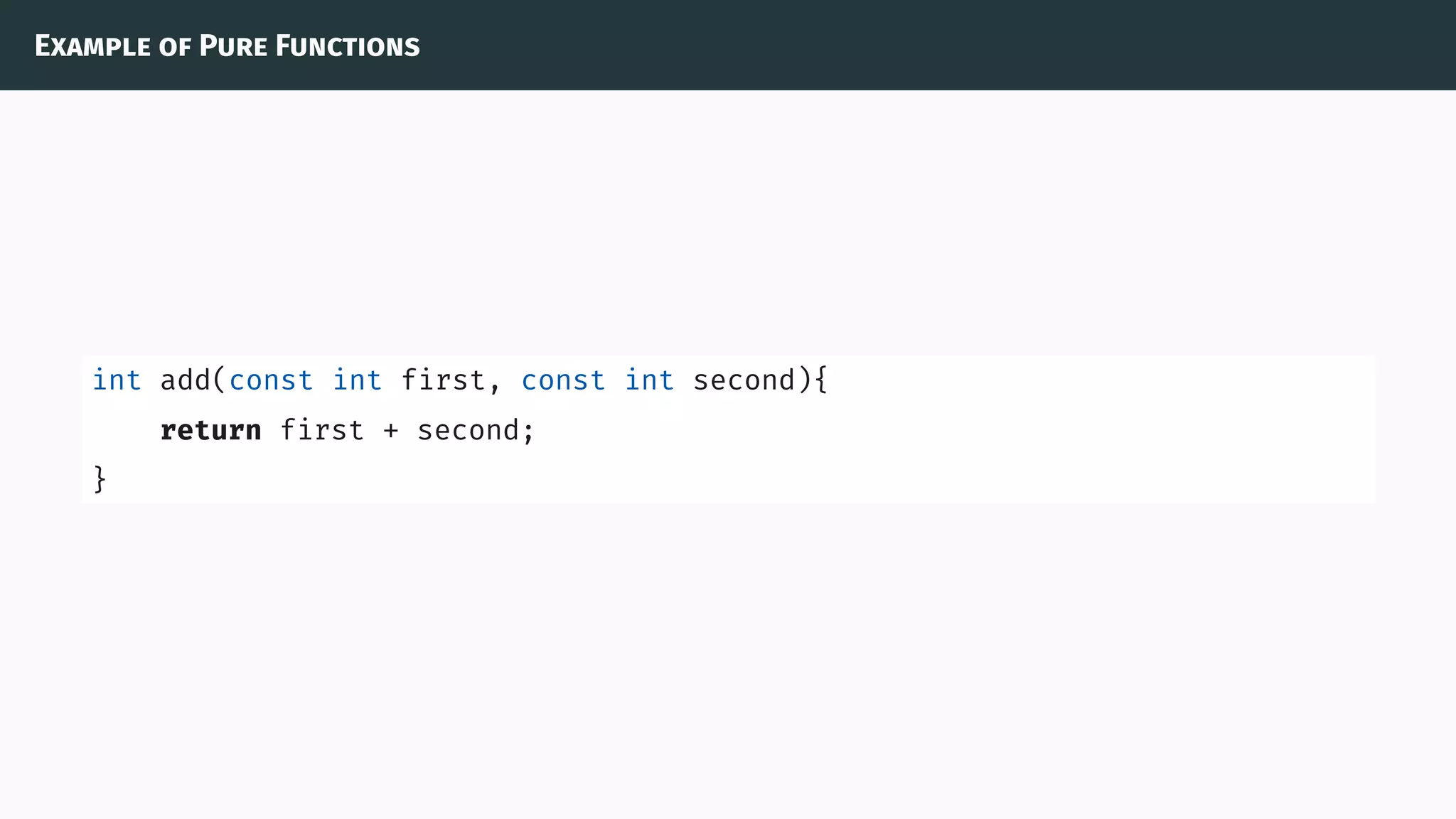
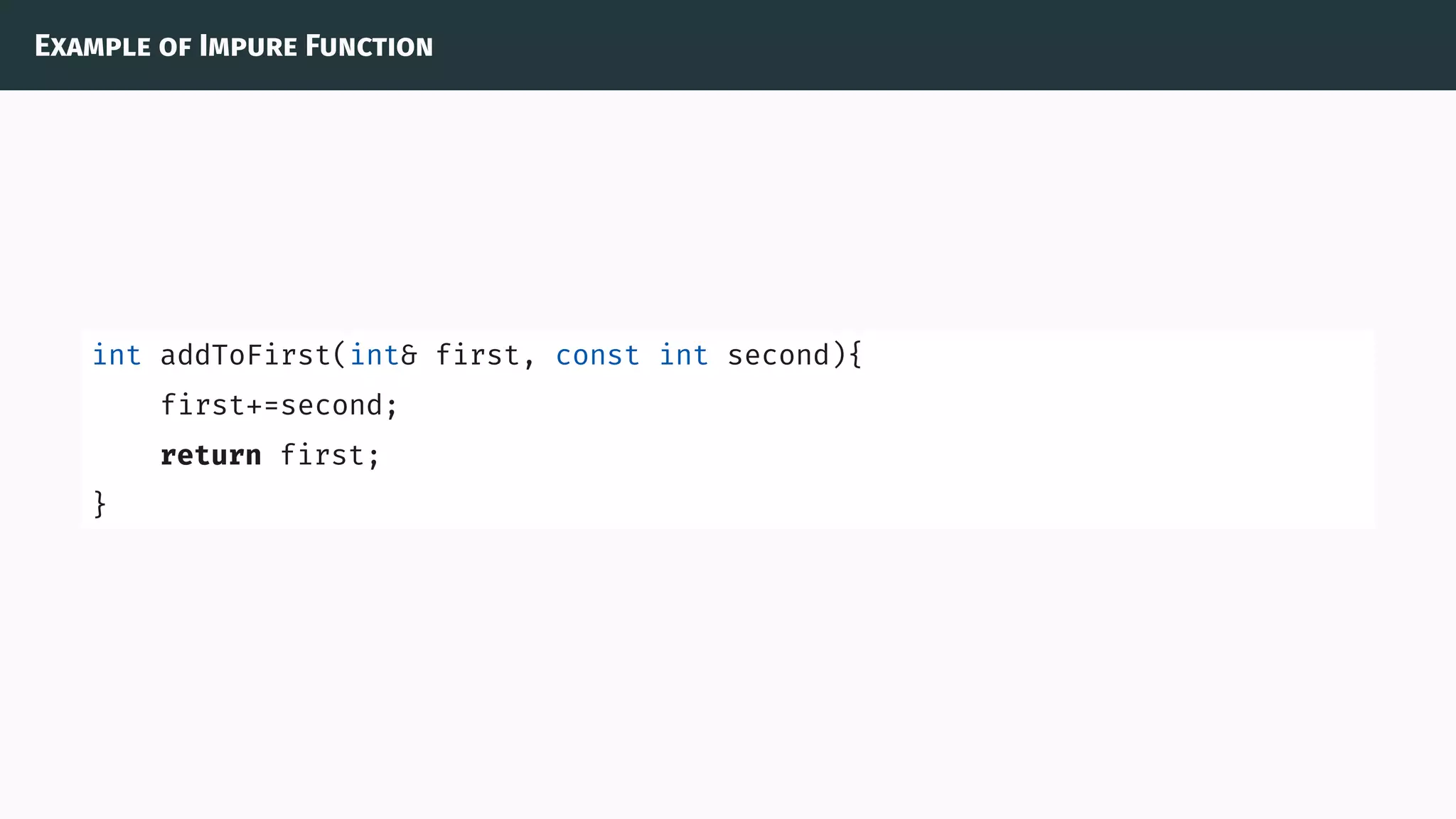
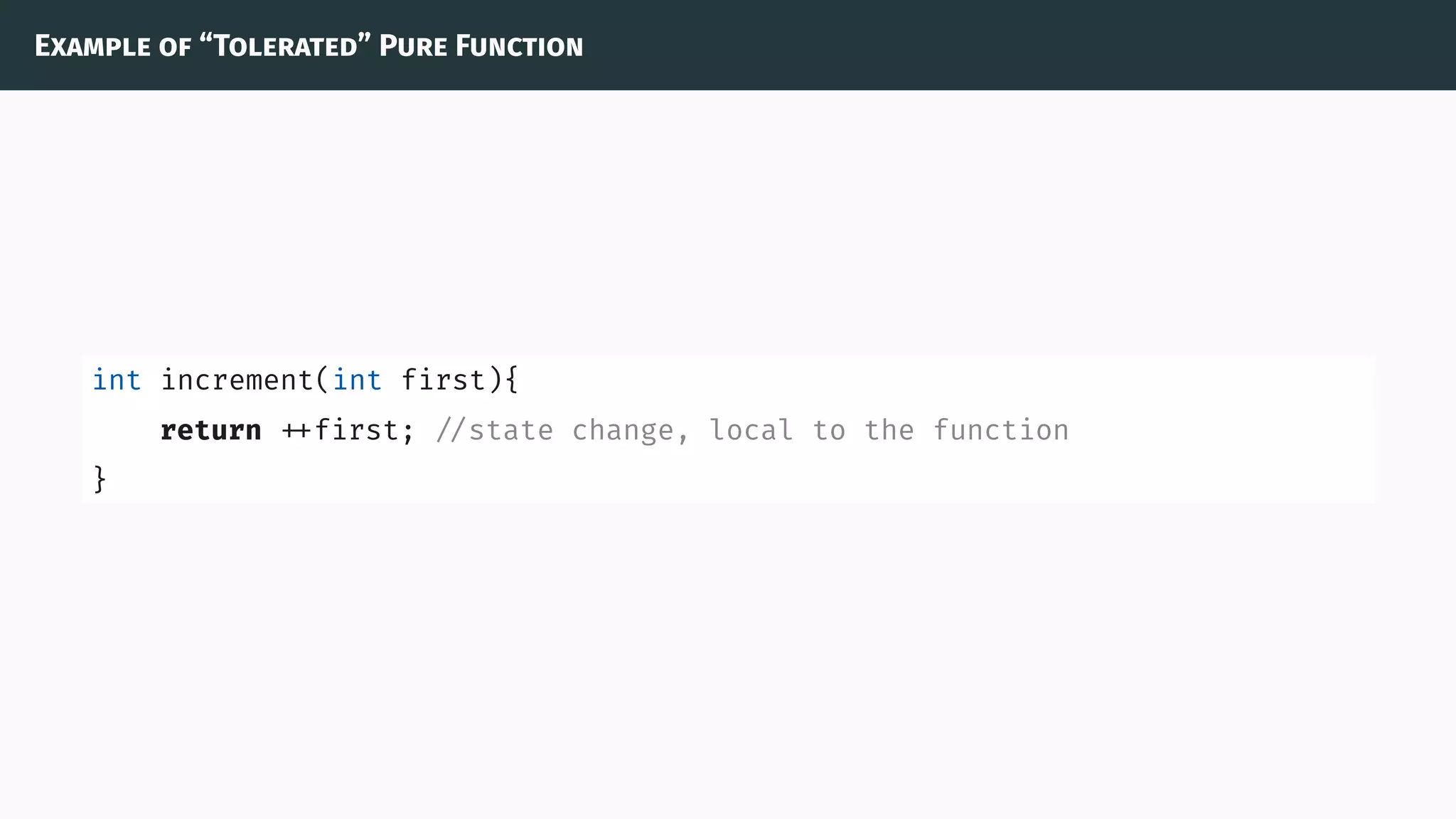
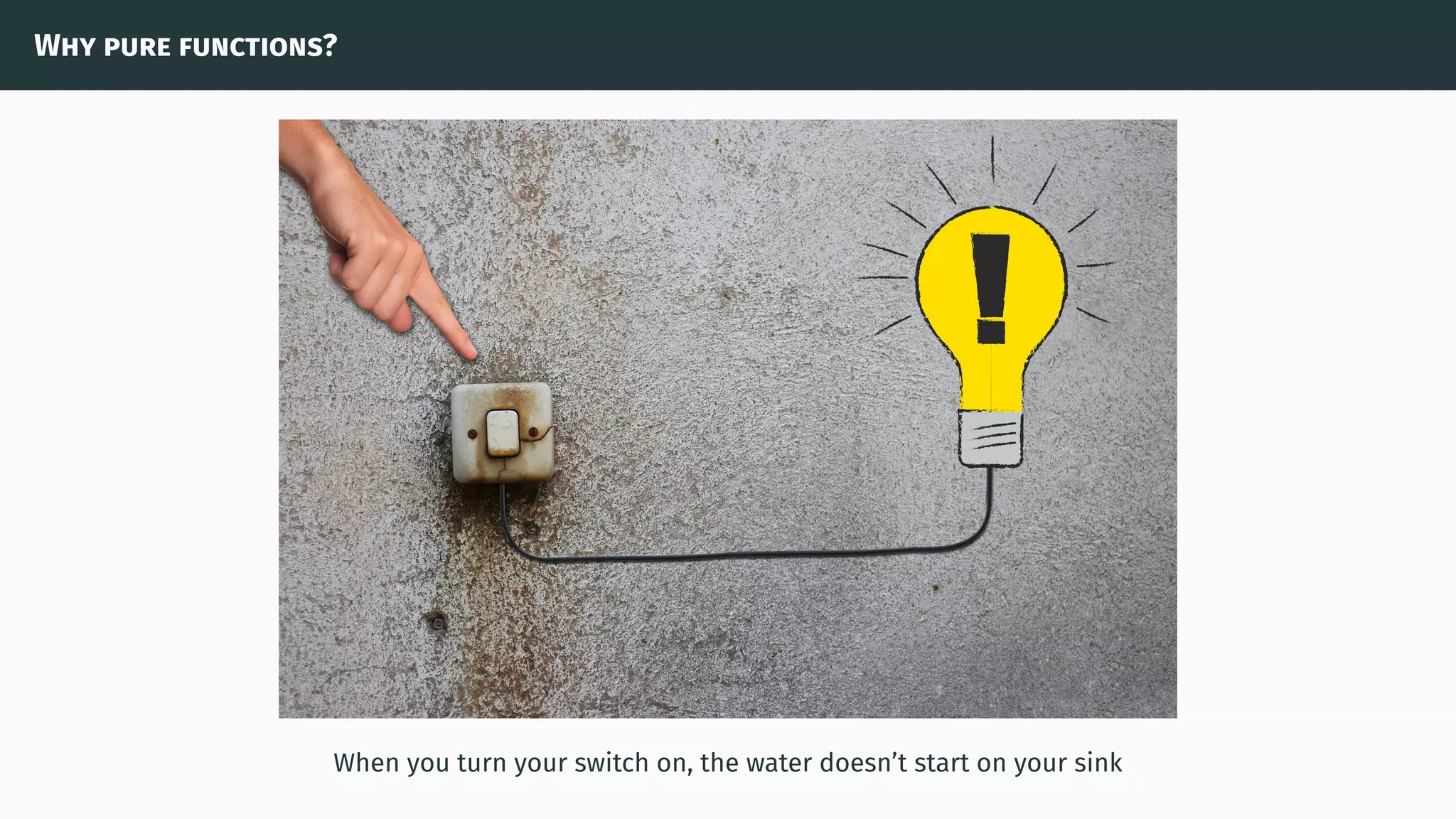
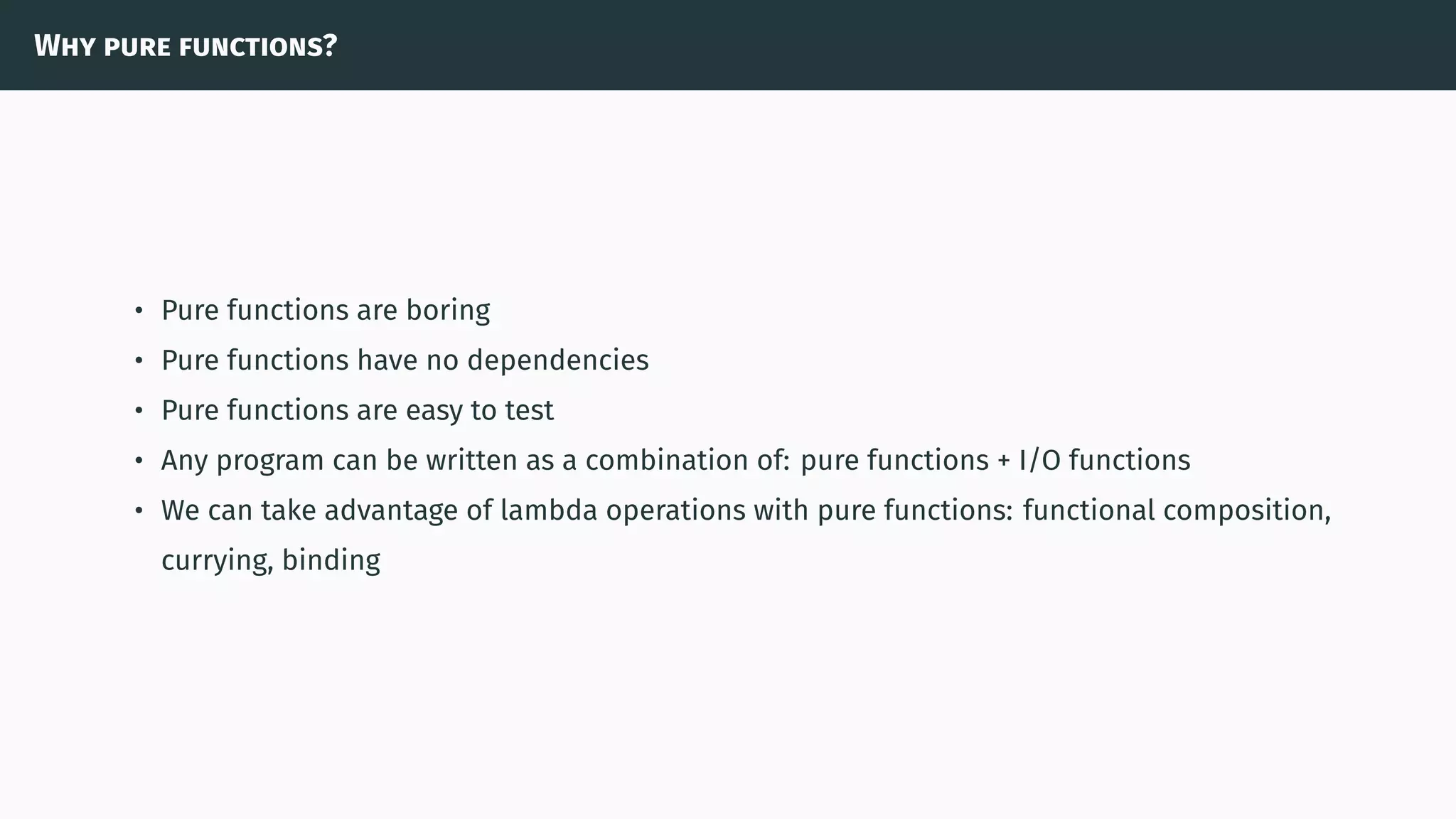
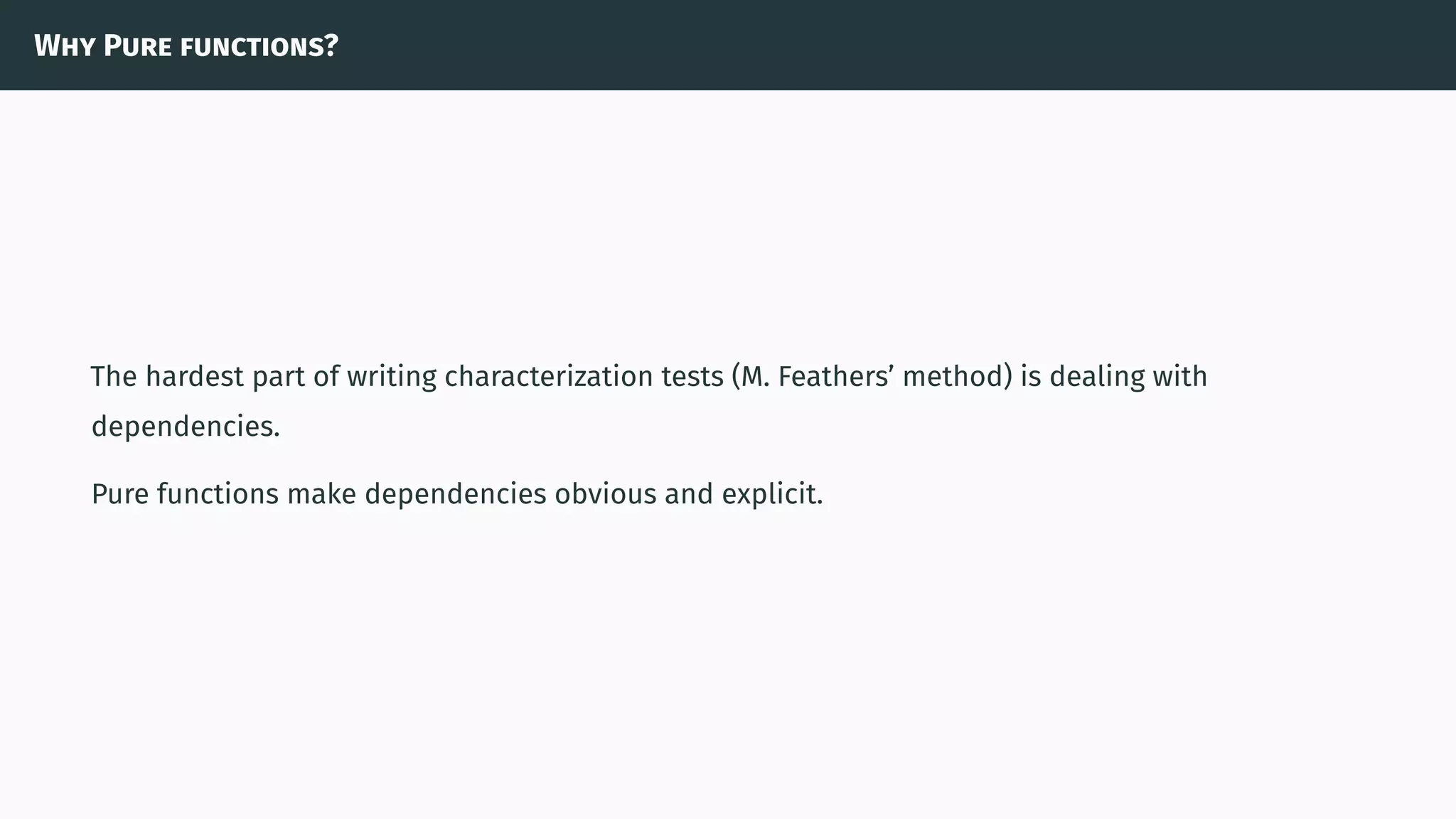
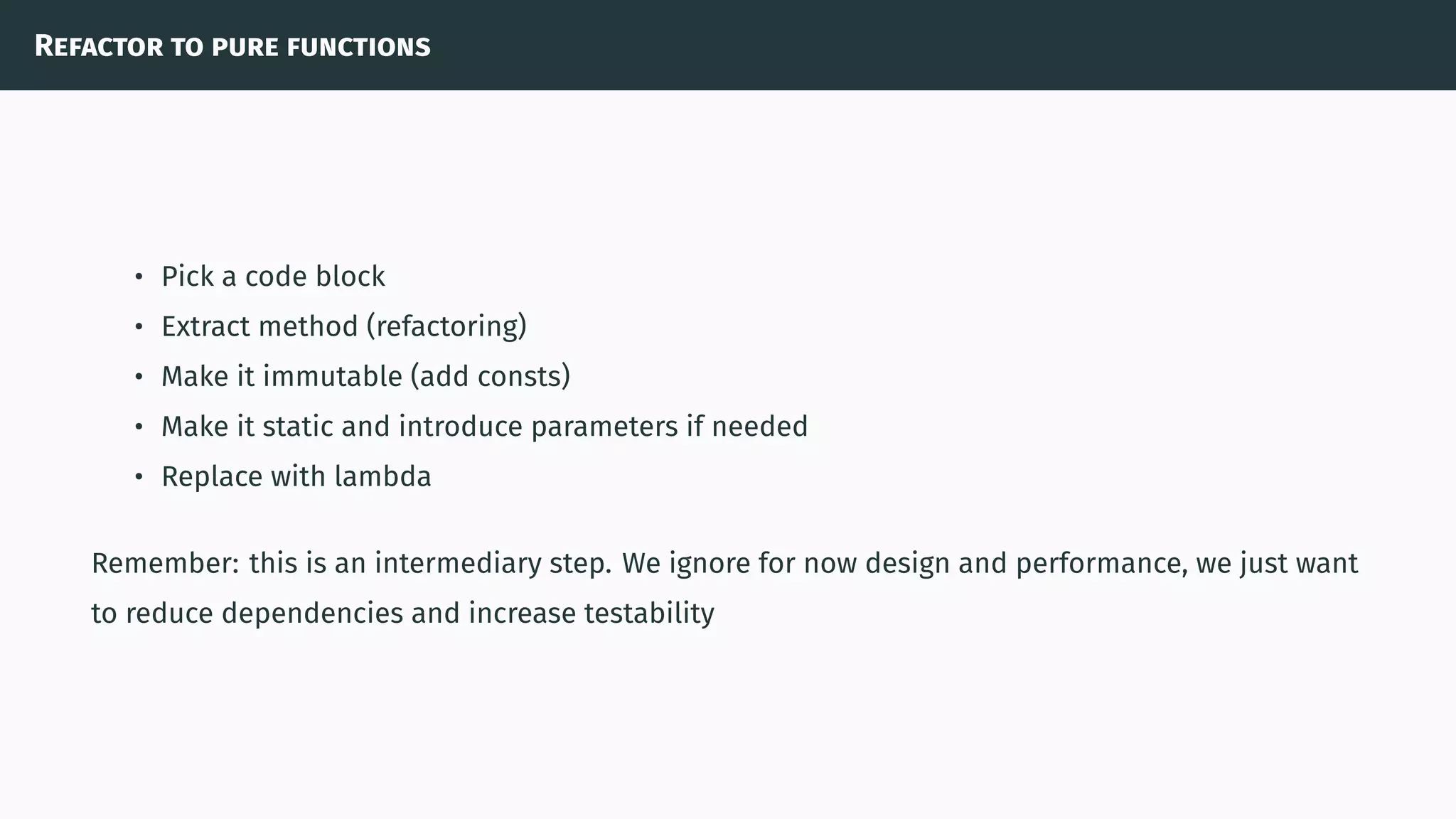
![Example
Game ::Game() : currentPlayer(0), places{}, purses{} {
for (int i = 0; i < 50; i ) {
ostringstream oss(ostringstream ::out);
oss << ”Pop Question ” << i;
popQuestions.push_back(oss.str());
char str[255];
sprintf(str, ”Science Question %d”, i);
scienceQuestions.push_back(str);
char str1[255];
sprintf(str1, ”Sports Question %d”, i);
sportsQuestions.push_back(str1);
rockQuestions.push_back(createRockQuestion(i));
}
}](https://image.slidesharecdn.com/refactorlegacycodethroughpurefunctions-200224205309/75/Refactor-legacy-code-through-pure-functions-30-2048.jpg)
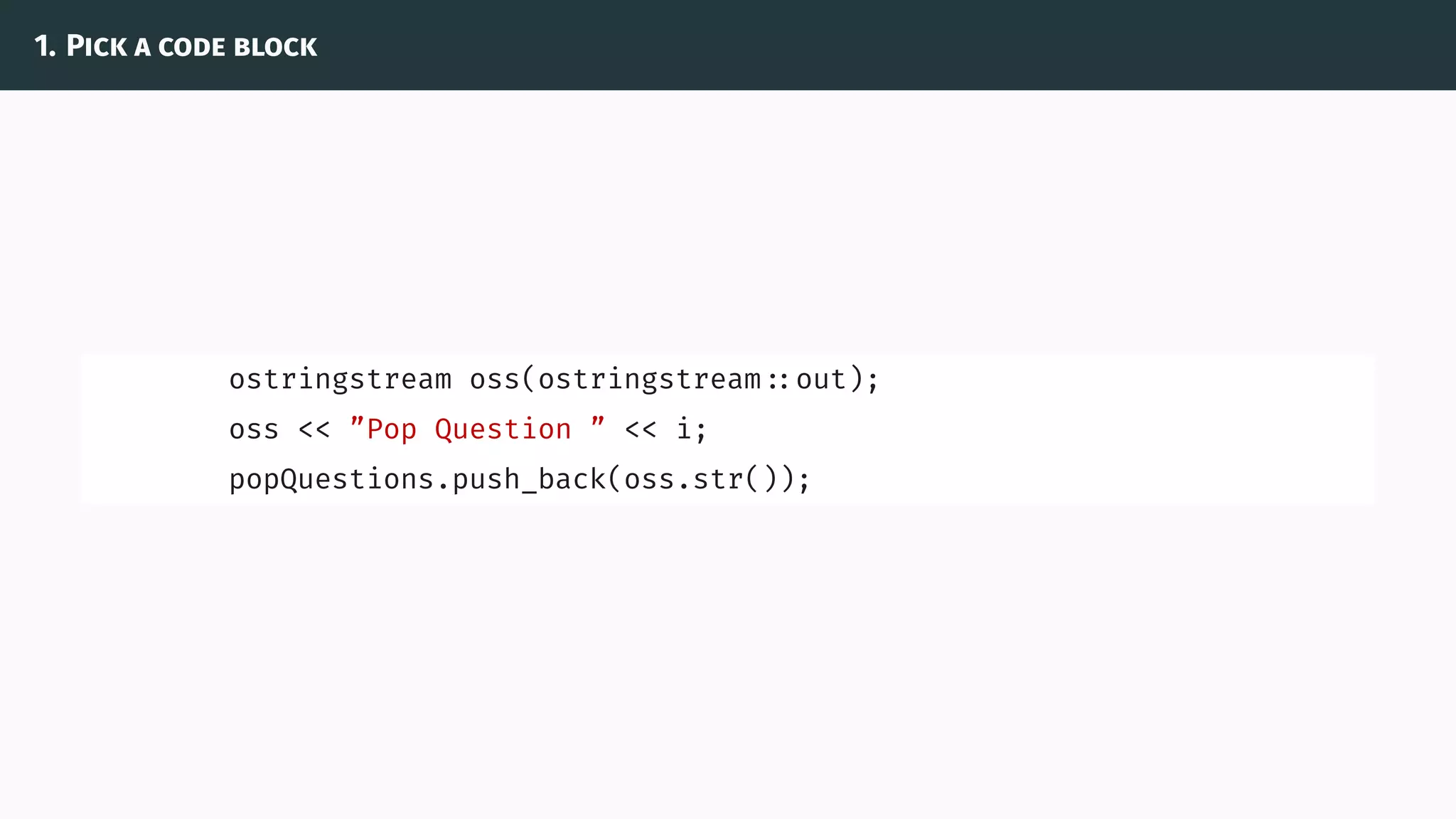
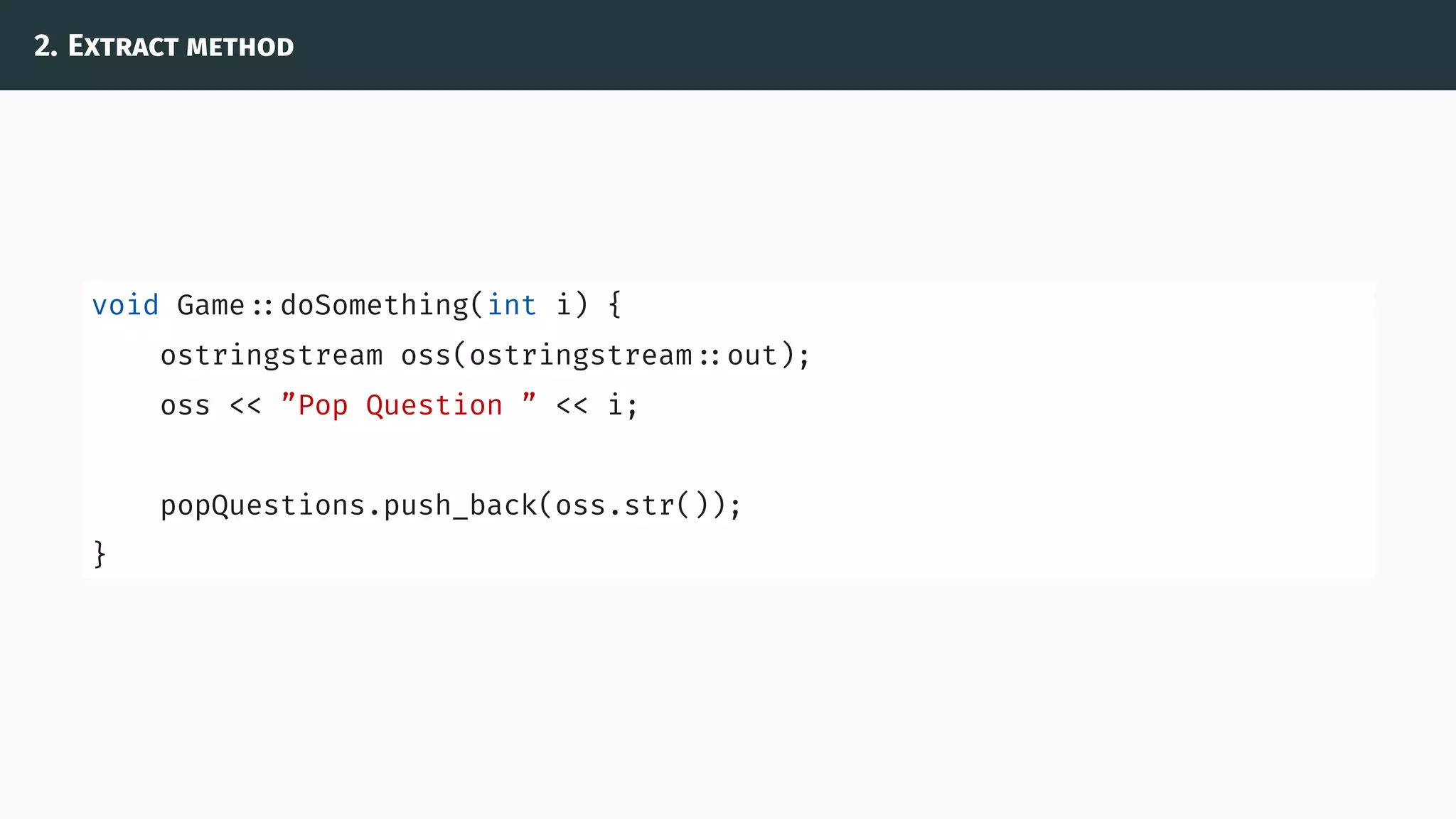
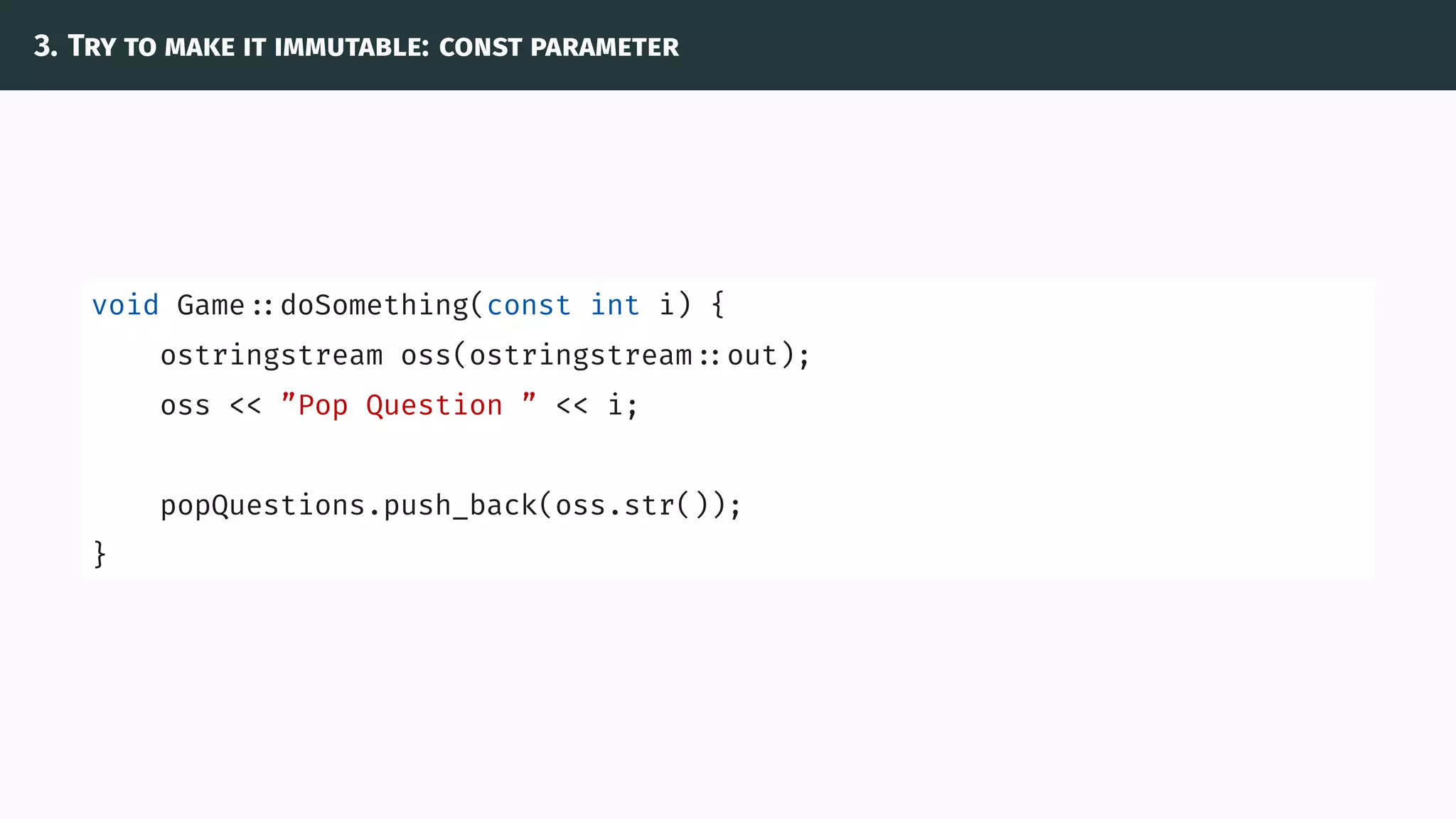
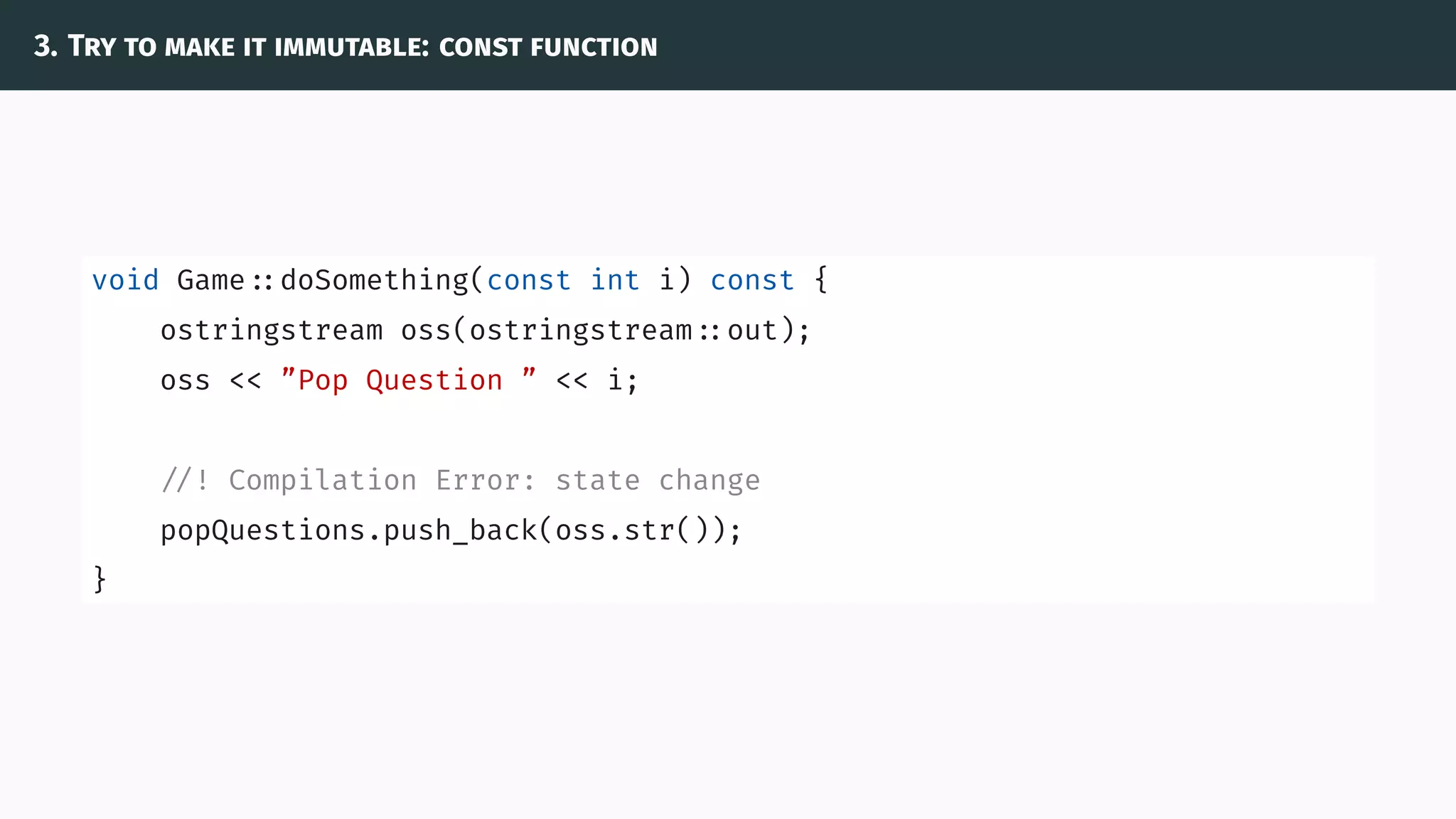
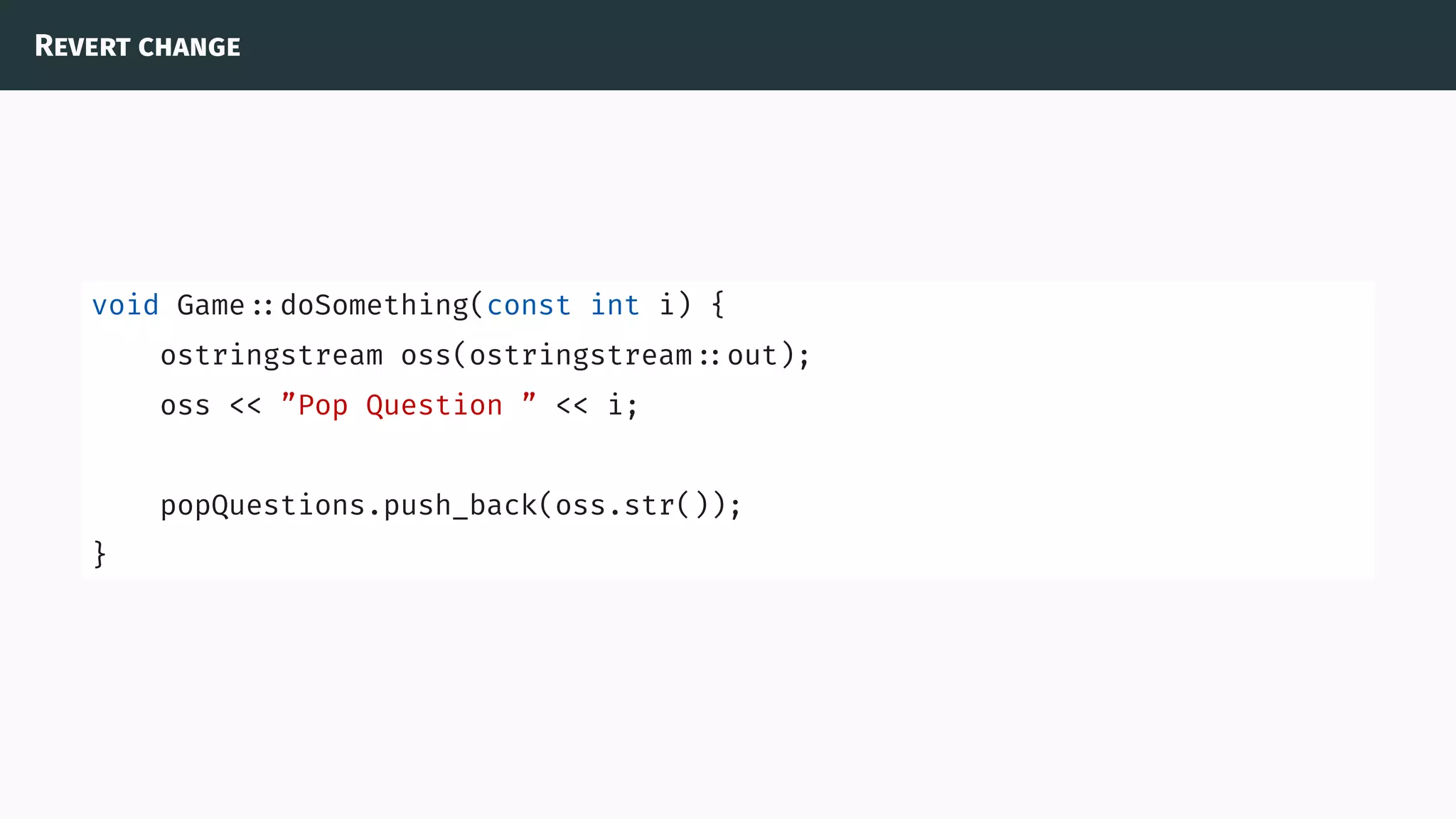

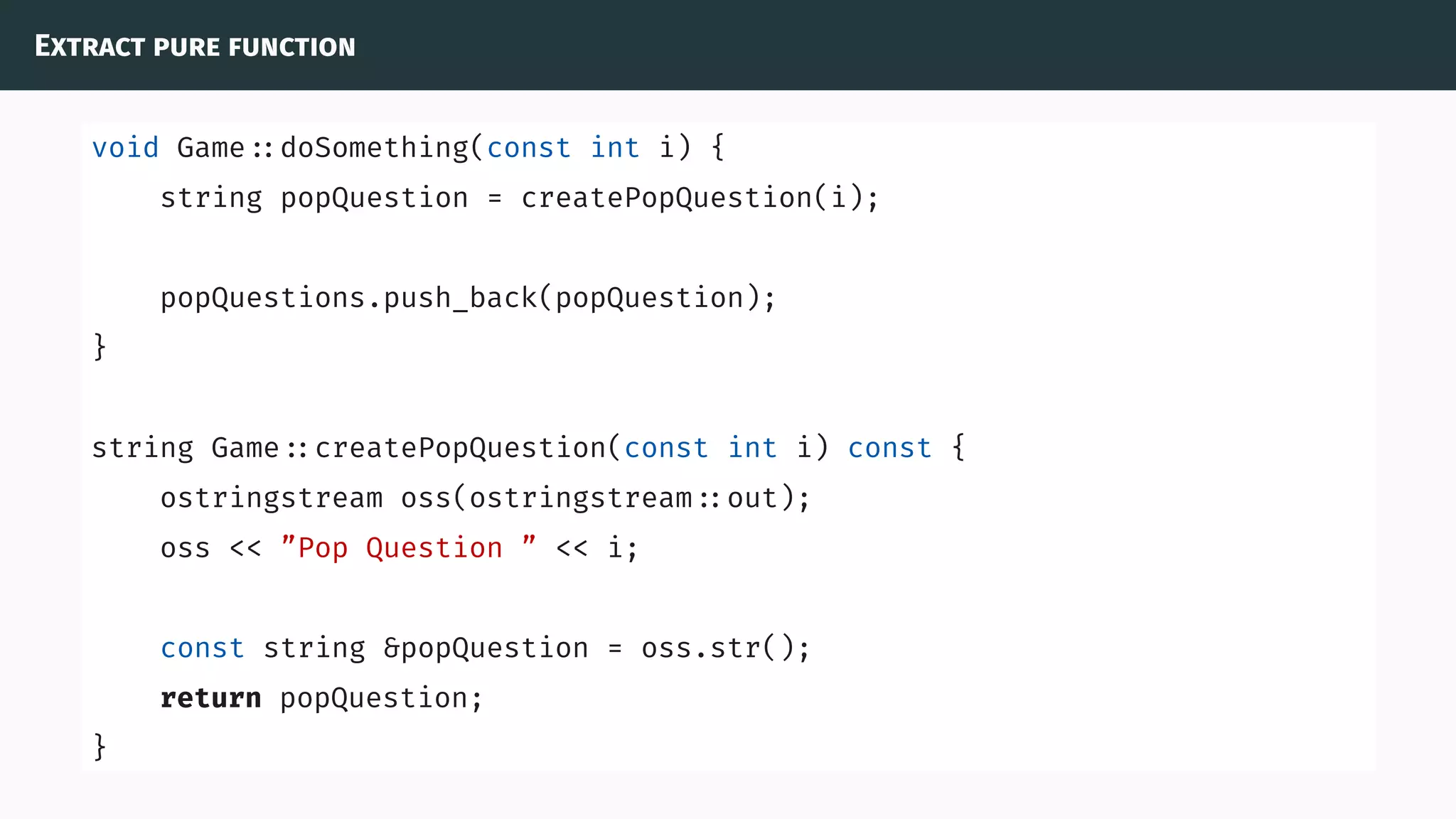
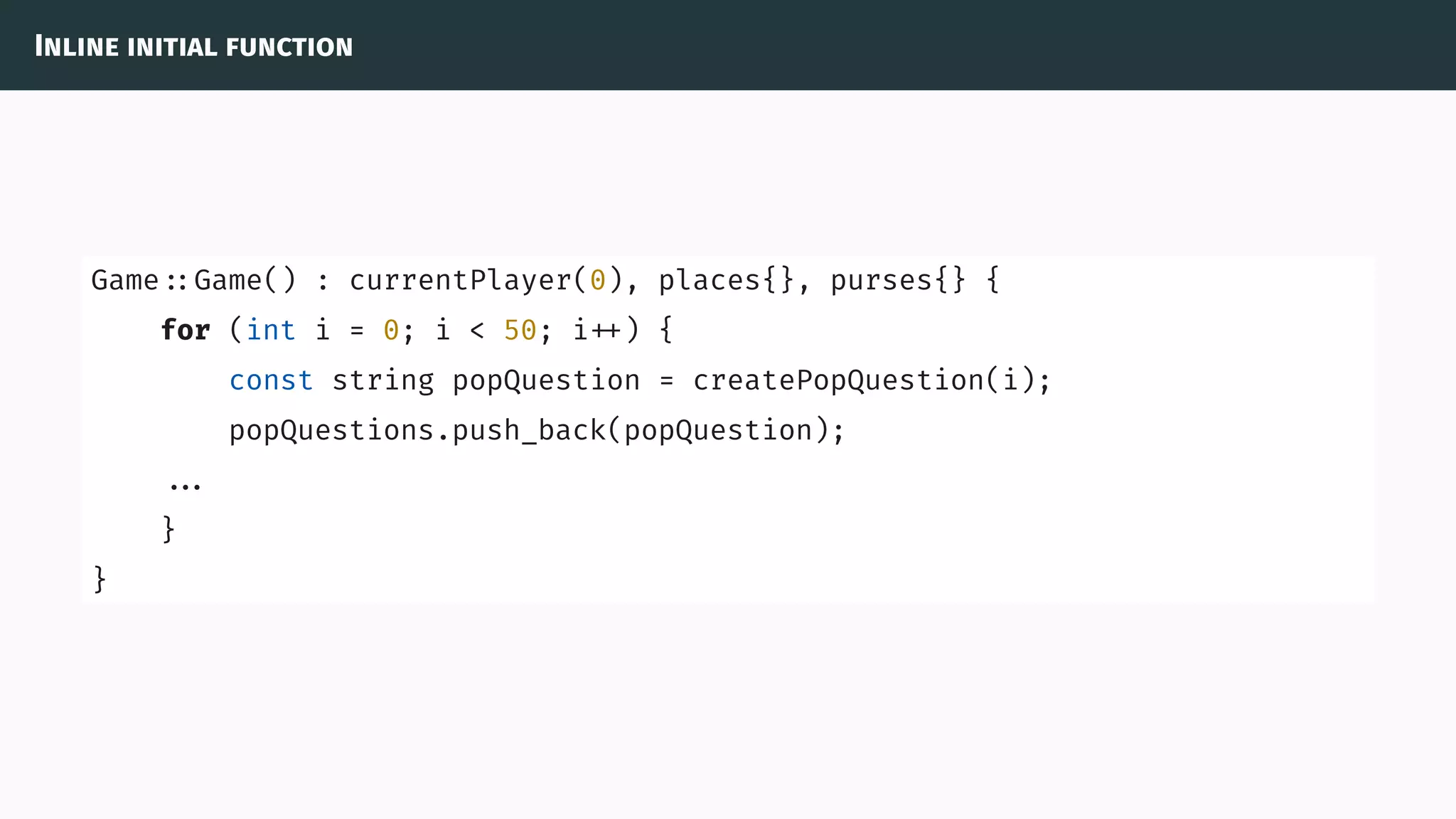
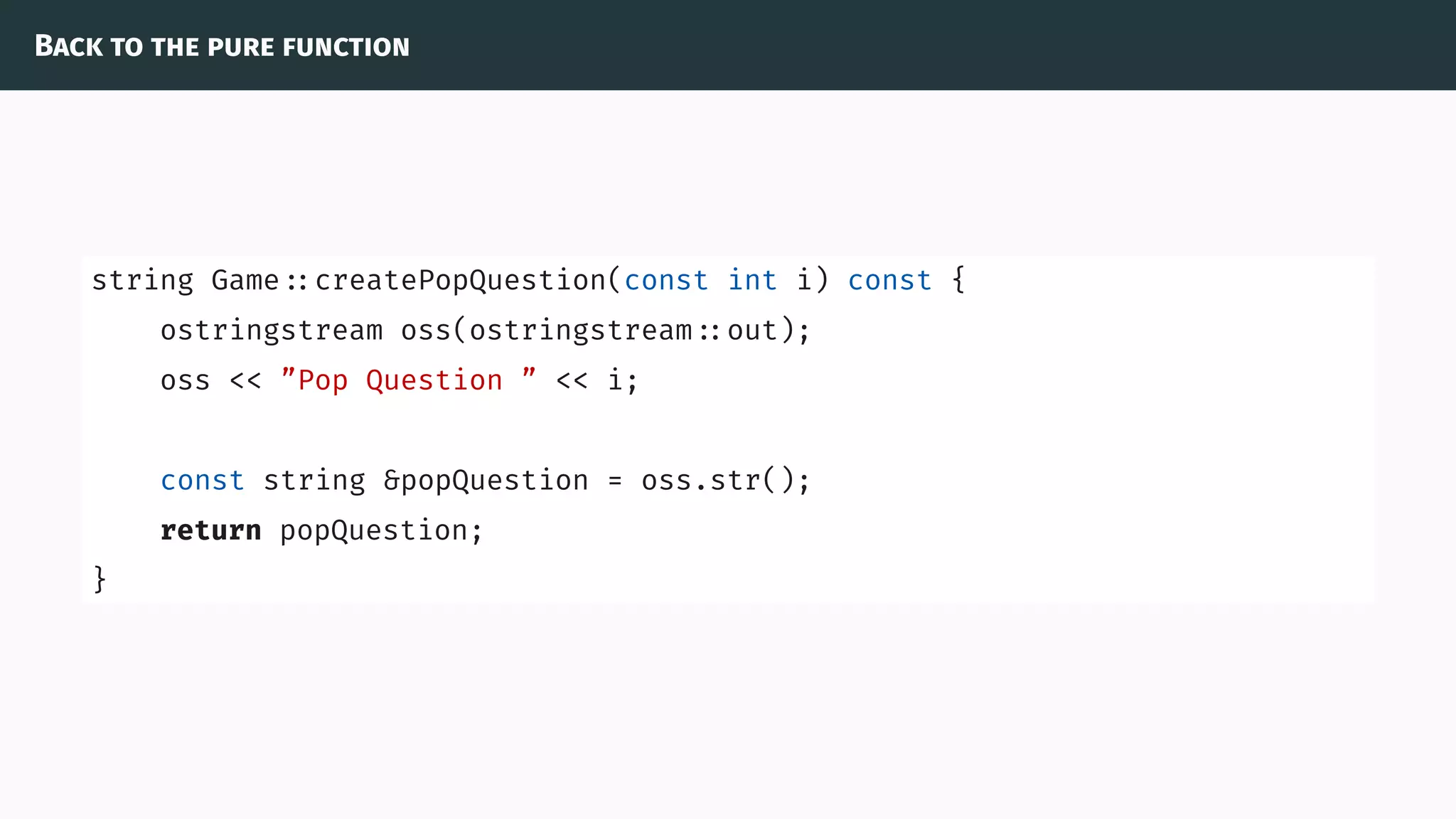
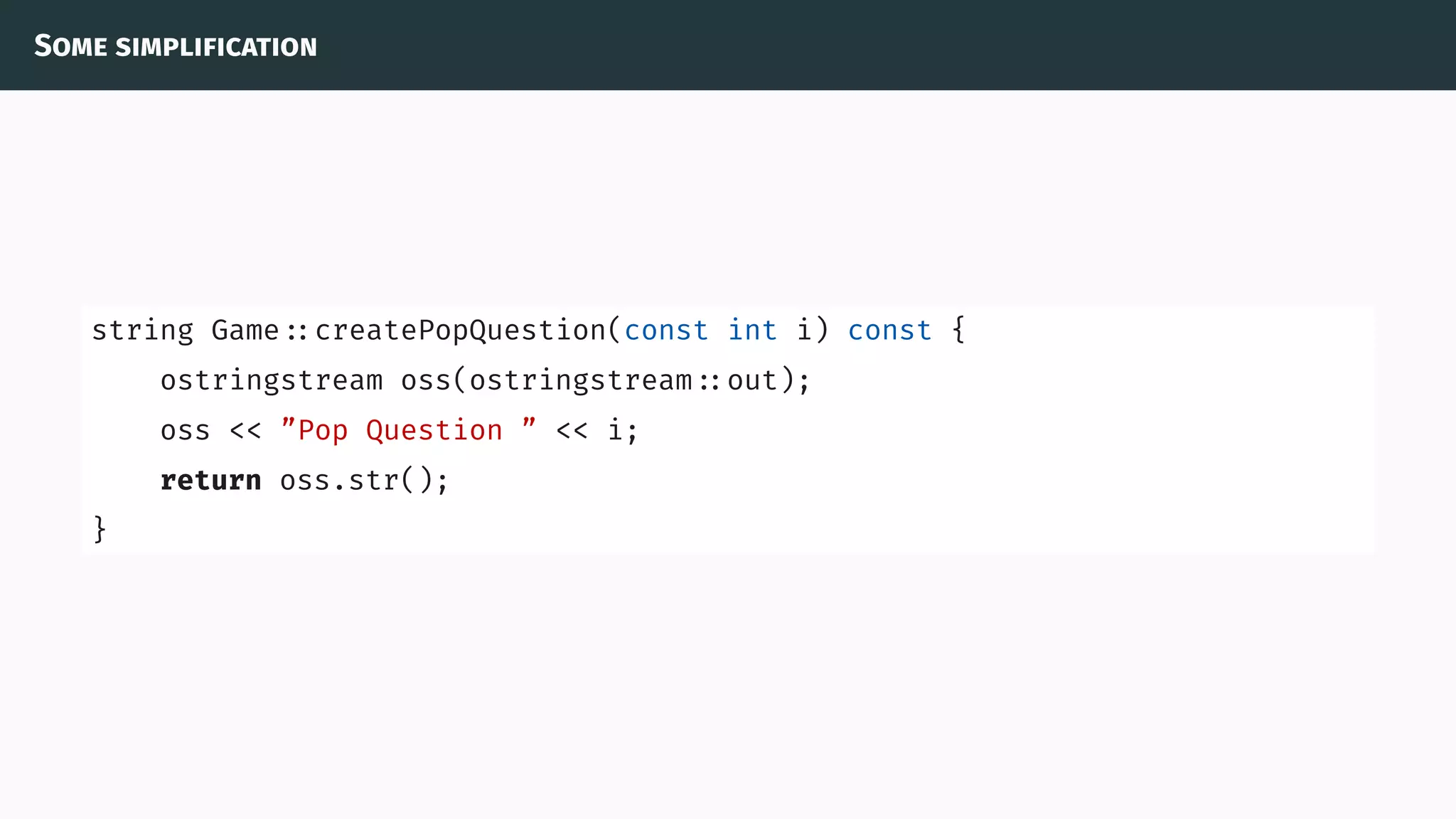
 -> string {
ostringstream oss(ostringstream ::out);
oss << ”Pop Question ” << i;
return oss.str();
};
string Game ::createPopQuestion(const int i) const {
createPopQuestion_Lambda(i);
}](https://image.slidesharecdn.com/refactorlegacycodethroughpurefunctions-200224205309/75/Refactor-legacy-code-through-pure-functions-41-2048.jpg)
![Move lambda up and inline method
Game ::Game() : currentPlayer(0), places{}, purses{} {
for (int i = 0; i < 50; i ) {
popQuestions.push_back(createPopQuestion_Lambda(i));
char str[255];
sprintf(str, ”Science Question %d”, i);
scienceQuestions.push_back(str);
...
}
}](https://image.slidesharecdn.com/refactorlegacycodethroughpurefunctions-200224205309/75/Refactor-legacy-code-through-pure-functions-42-2048.jpg)
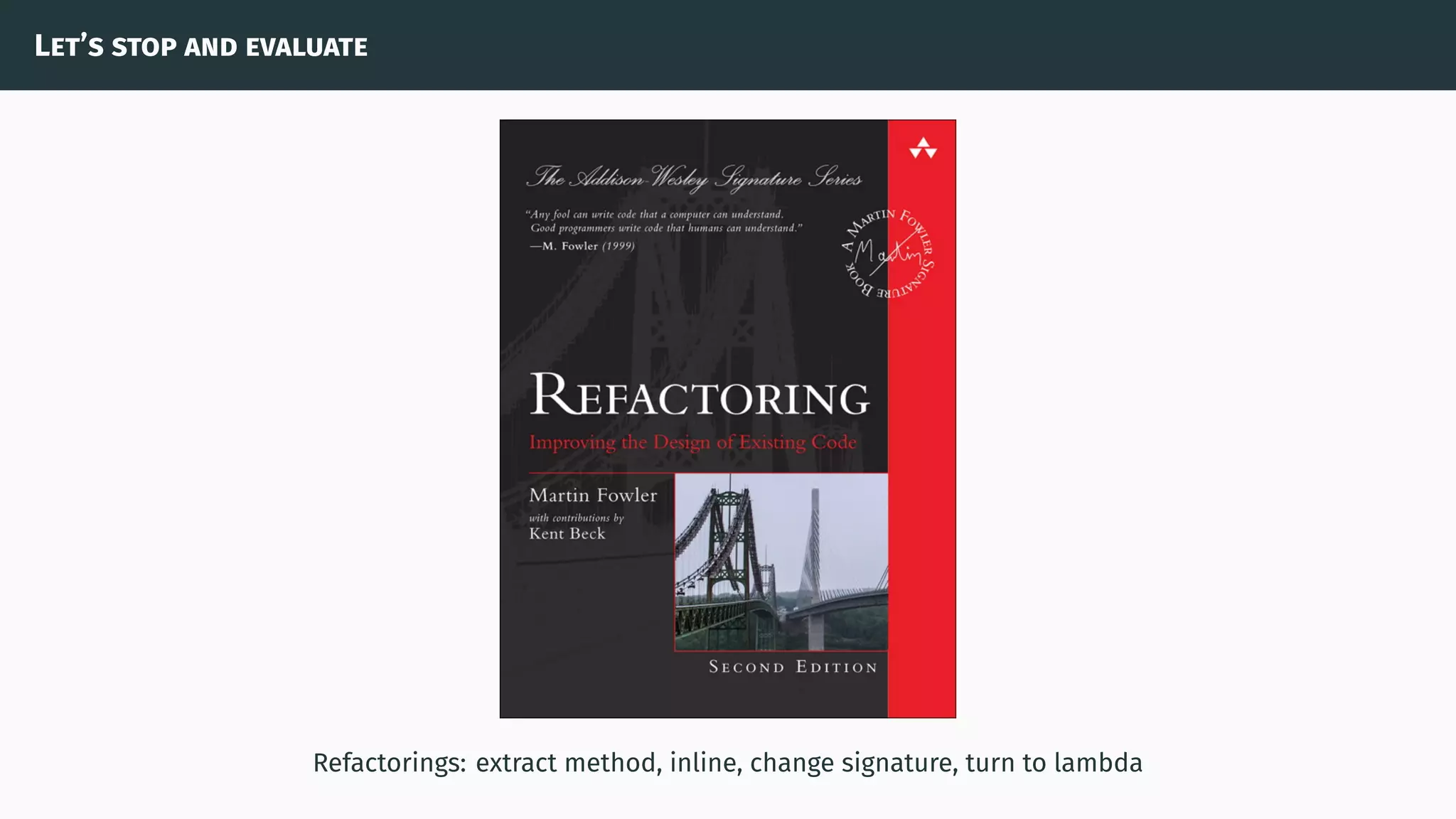
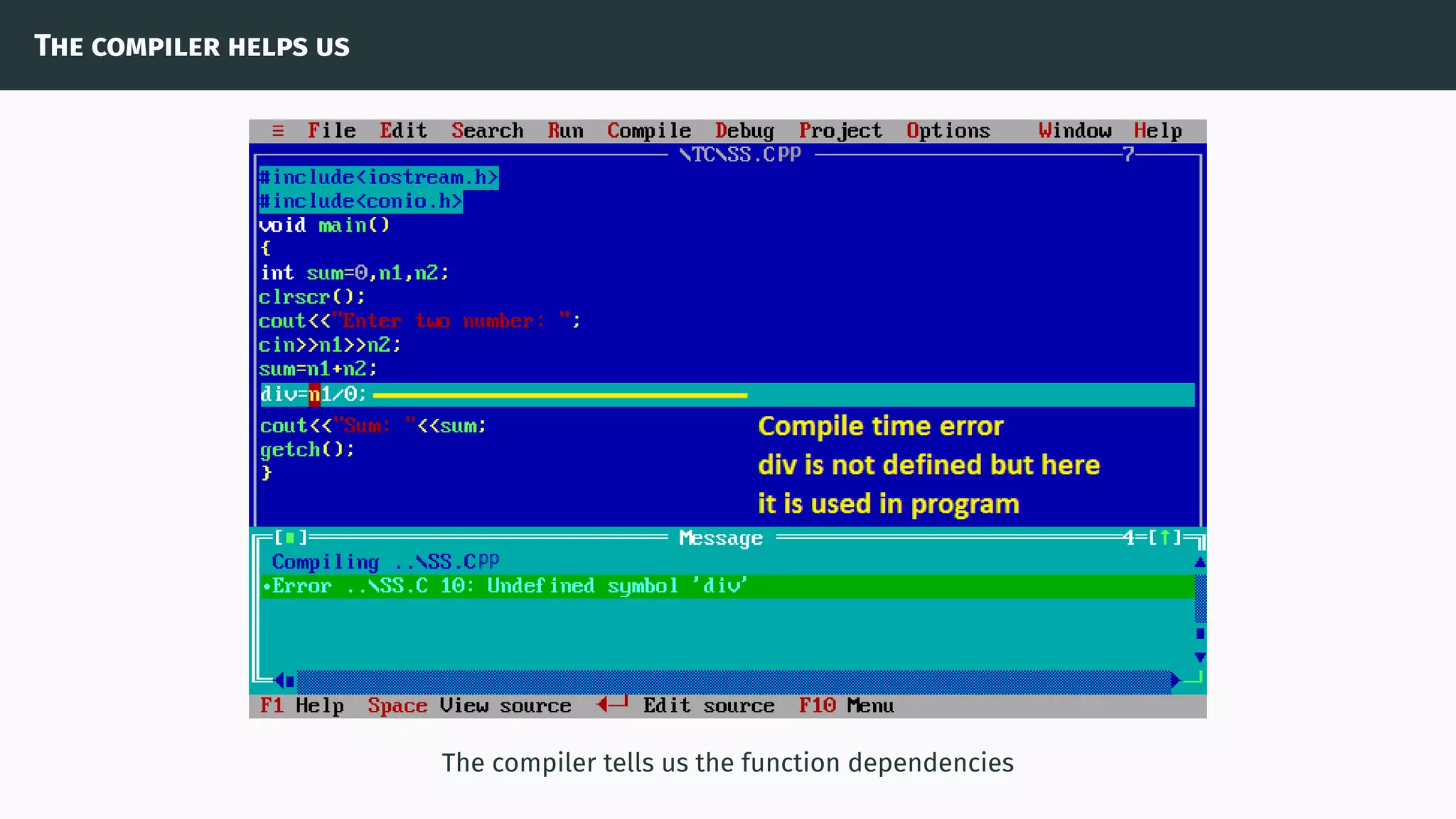
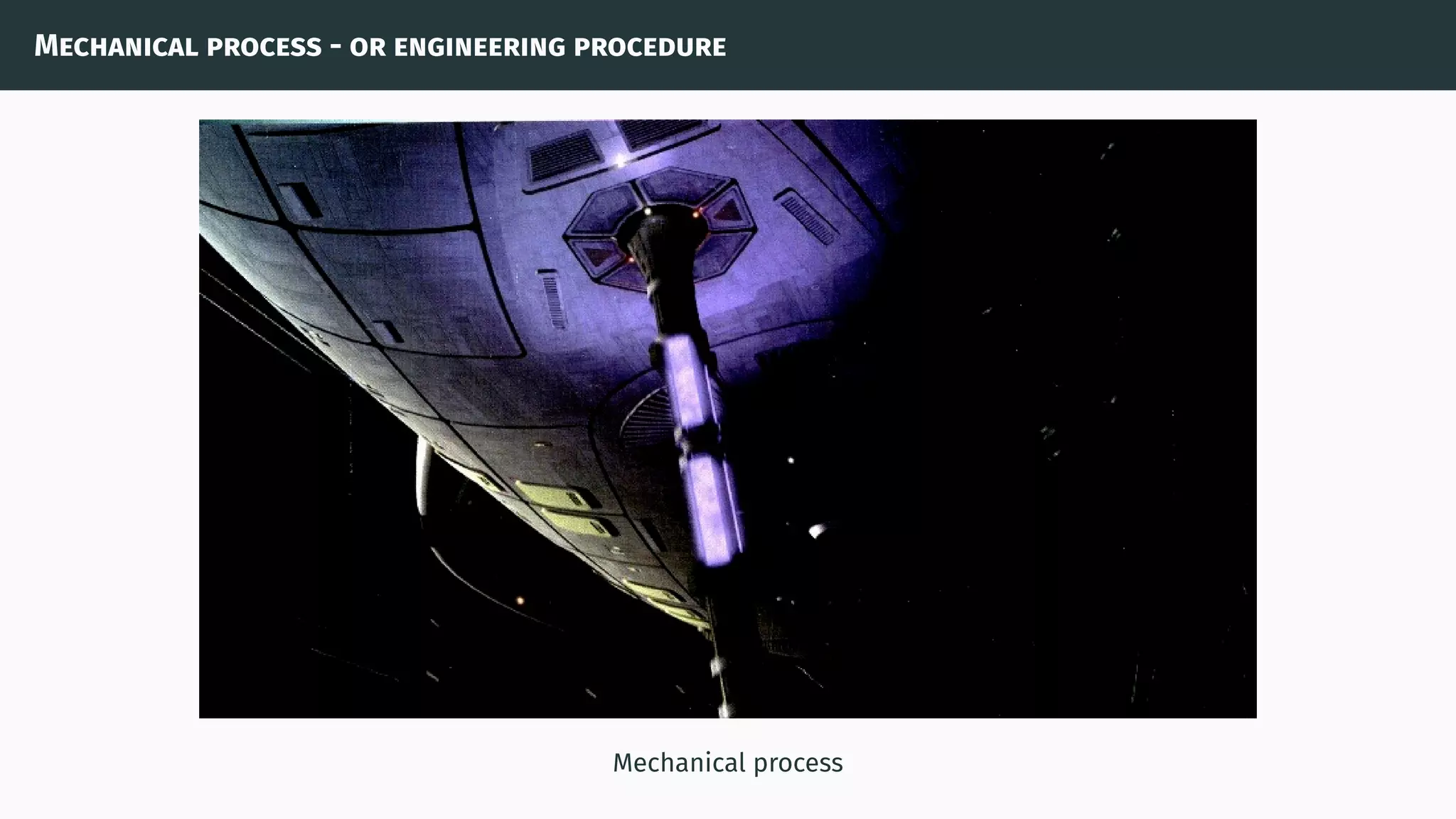
 -> string {
ostringstream oss(ostringstream ::out);
oss << ”Pop Question ” << i;
return oss.str();
};](https://image.slidesharecdn.com/refactorlegacycodethroughpurefunctions-200224205309/75/Refactor-legacy-code-through-pure-functions-46-2048.jpg)
![What about state changes?
bool Game ::add(string playerName) {
players.push_back(playerName);
places[howManyPlayers()] = 0;
purses[howManyPlayers()] = 0;
inPenaltyBox[howManyPlayers()] = false;
cout << playerName << ” was added” << endl;
cout << ”They are player number ” << players.size() << endl;
return true;
}](https://image.slidesharecdn.com/refactorlegacycodethroughpurefunctions-200224205309/75/Refactor-legacy-code-through-pure-functions-47-2048.jpg)
![Pick code that makes the state change
bool Game ::add(string playerName) {
// State change
players.push_back(playerName);
// State change
places[howManyPlayers()] = 0;
// State change
purses[howManyPlayers()] = 0;
// State change
inPenaltyBox[howManyPlayers()] = false;
// I/O
cout << playerName << ” was added” << endl;
cout << ”They are player number ” << players.size() << endl;
return true;
}](https://image.slidesharecdn.com/refactorlegacycodethroughpurefunctions-200224205309/75/Refactor-legacy-code-through-pure-functions-48-2048.jpg)
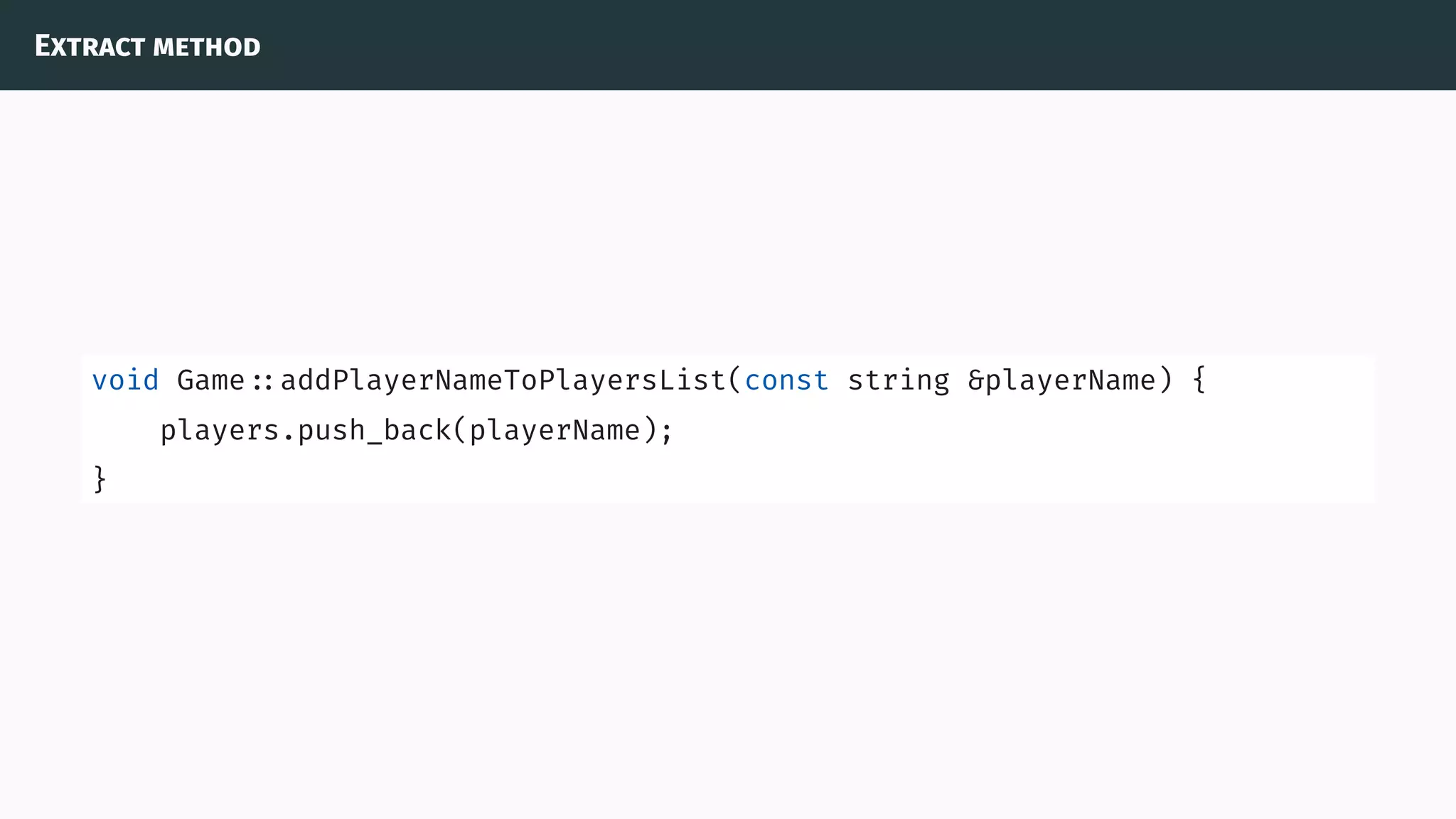
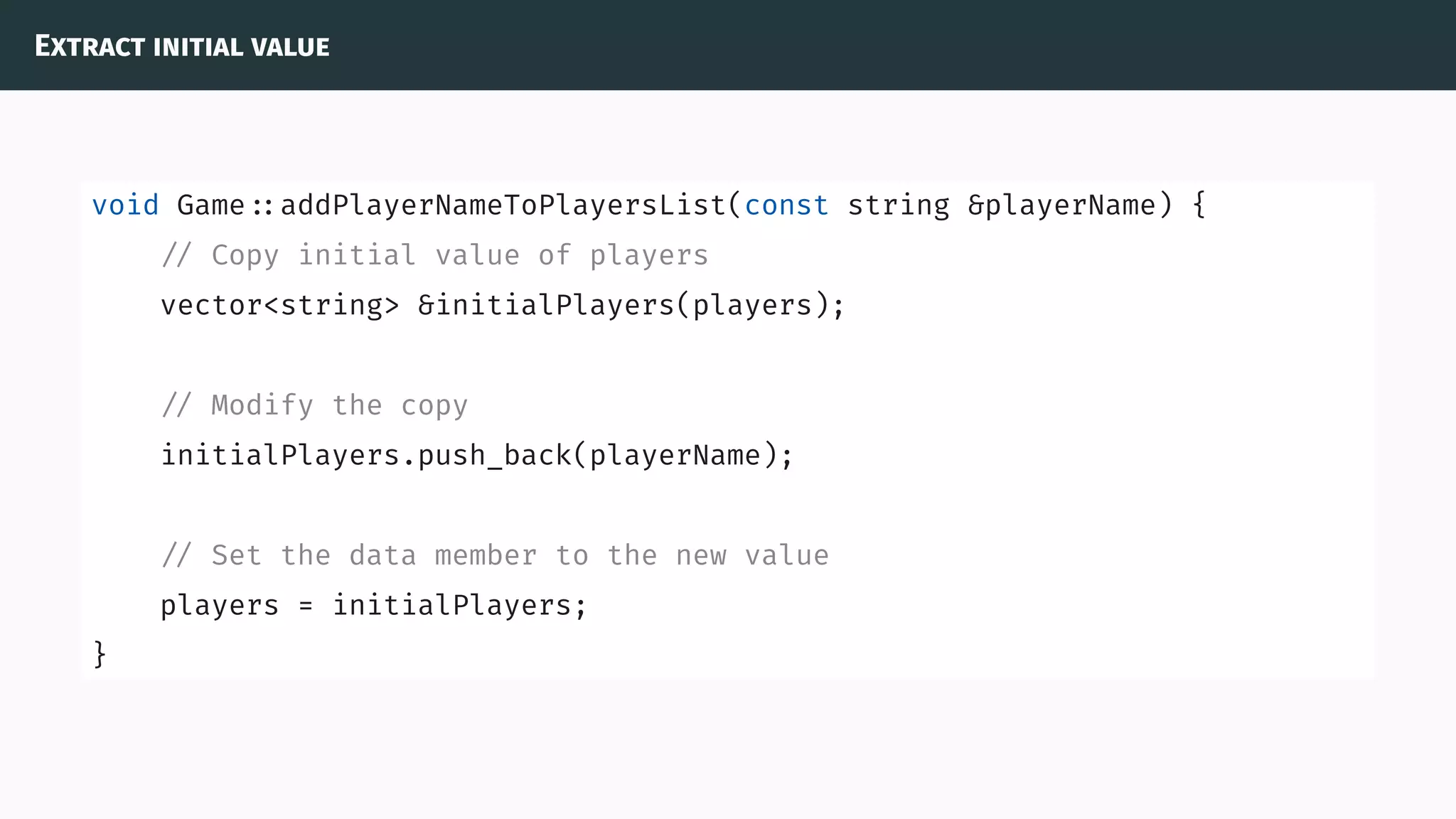
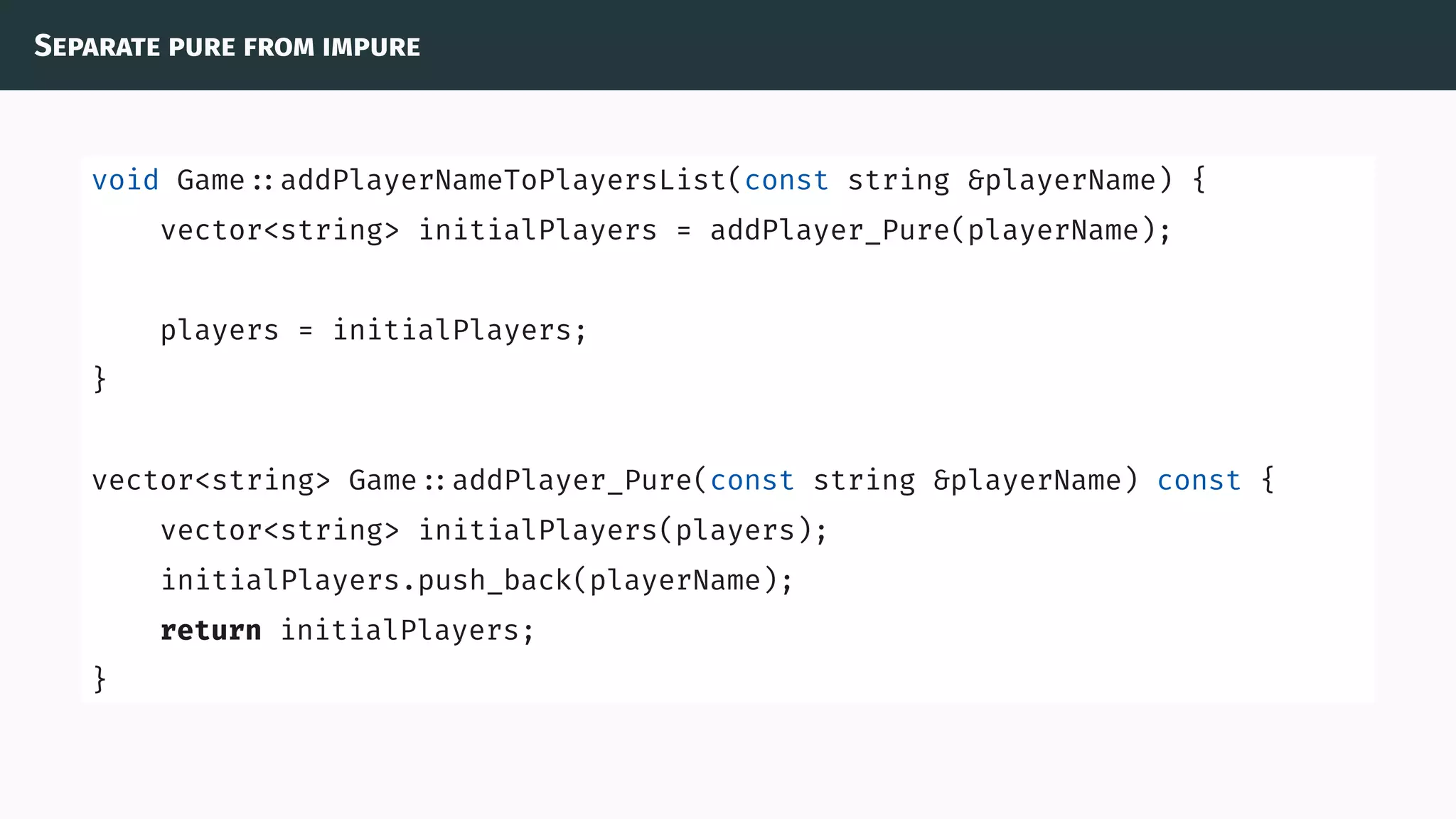
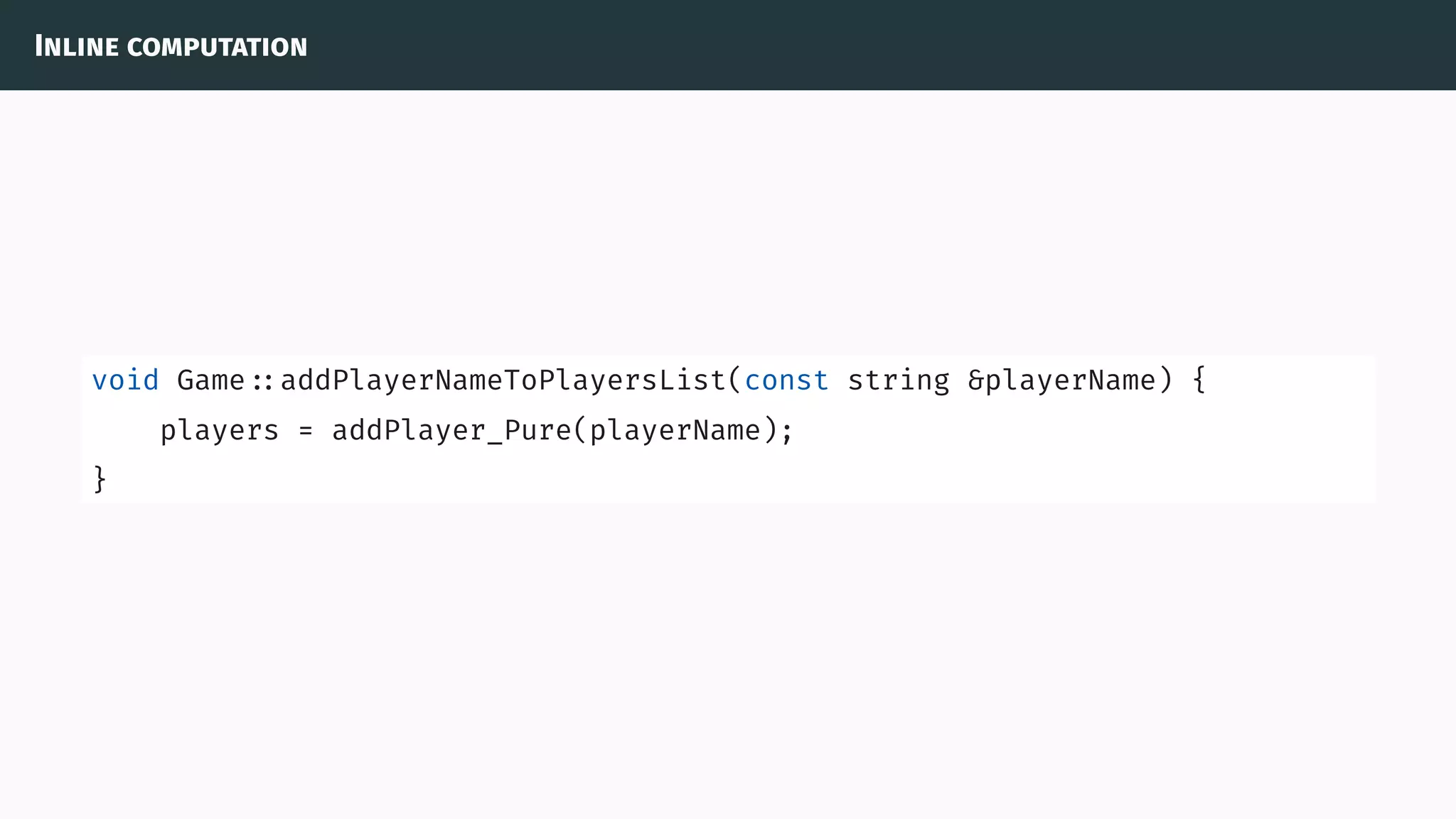
![Inline method
bool Game ::add(string playerName) {
players = addPlayer_Pure(playerName);
places[howManyPlayers()] = 0;
purses[howManyPlayers()] = 0;
inPenaltyBox[howManyPlayers()] = false;
cout << playerName << ” was added” << endl;
cout << ”They are player number ” << players.size() << endl;
return true;
}](https://image.slidesharecdn.com/refactorlegacycodethroughpurefunctions-200224205309/75/Refactor-legacy-code-through-pure-functions-53-2048.jpg)
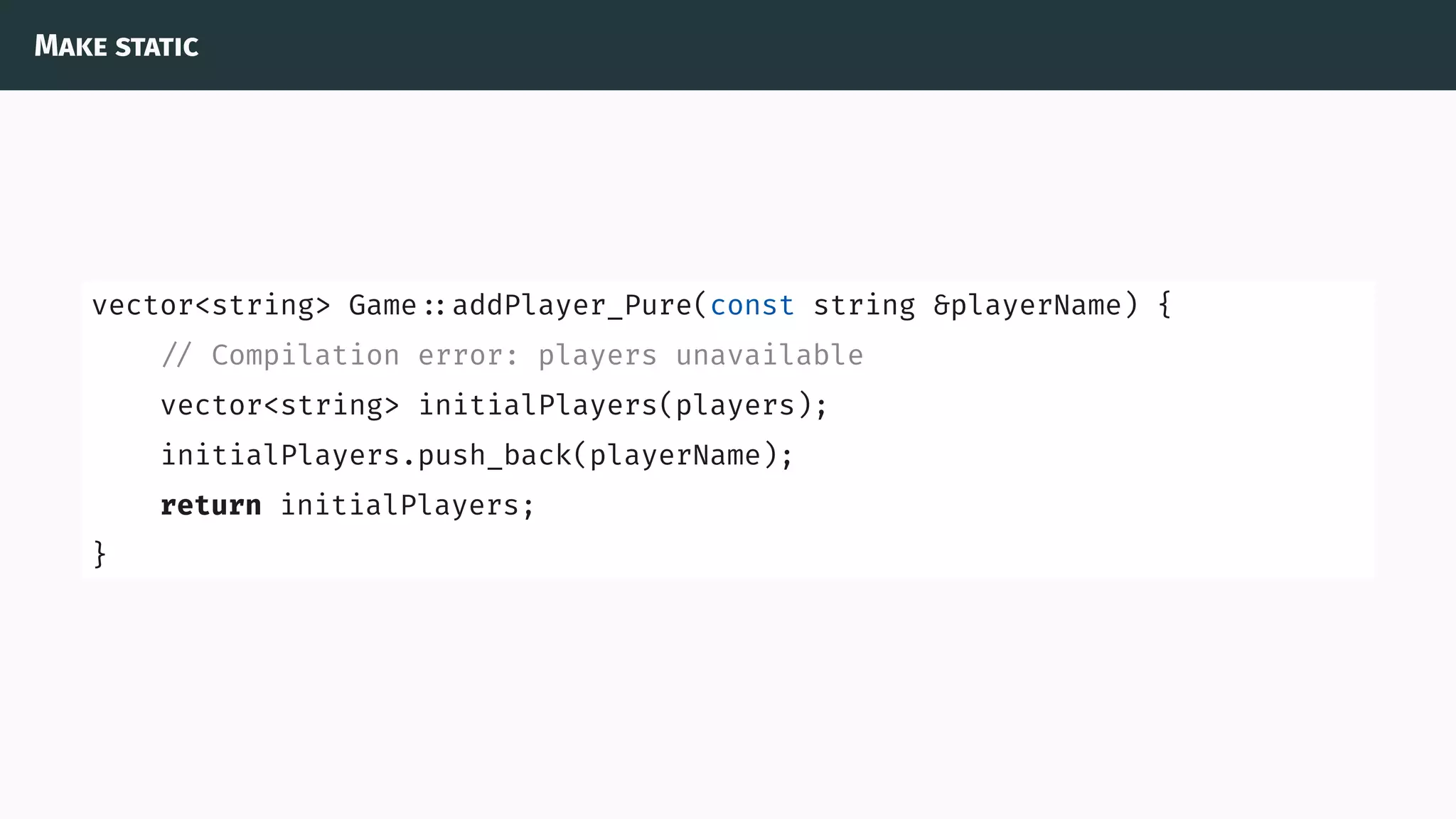
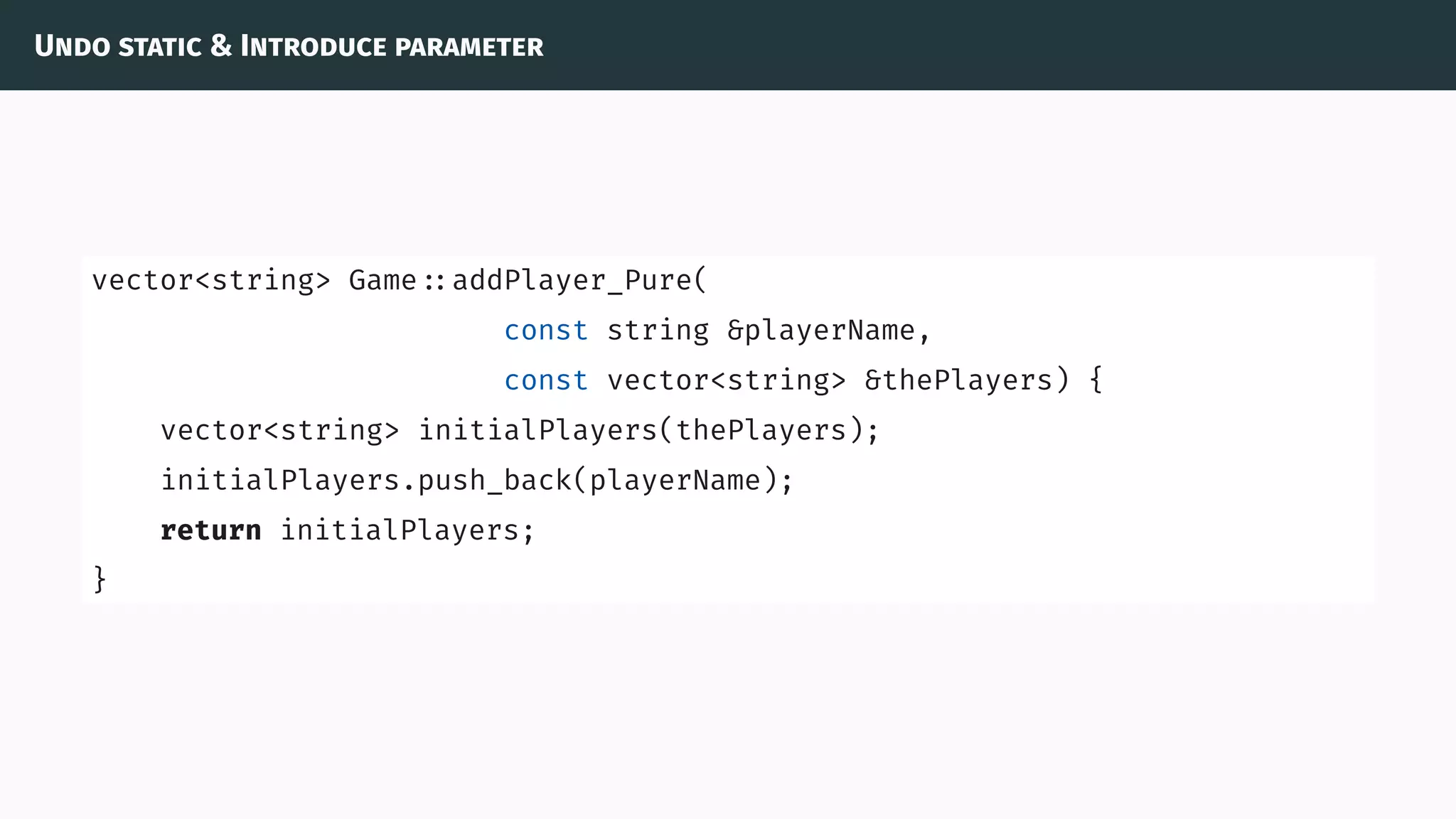

-> vector<string> {
vector<string> initialPlayers(thePlayers);
initialPlayers.push_back(playerName);
return initialPlayers;
};
vector<string> Game ::addPlayer_Pure(const string &playerName,
const vector<string> &thePlayers) {
addPlayerNameToCollection_Lambda(playerName, thePlayers);
}](https://image.slidesharecdn.com/refactorlegacycodethroughpurefunctions-200224205309/75/Refactor-legacy-code-through-pure-functions-56-2048.jpg)
![Inline
bool Game ::add(string playerName) {
players = addPlayerNameToCollection_Lambda(playerName, players);
places[howManyPlayers()] = 0;
purses[howManyPlayers()] = 0;
inPenaltyBox[howManyPlayers()] = false;
cout << playerName << ” was added” << endl;
cout << ”They are player number ” << players.size() << endl;
return true;
}](https://image.slidesharecdn.com/refactorlegacycodethroughpurefunctions-200224205309/75/Refactor-legacy-code-through-pure-functions-57-2048.jpg)
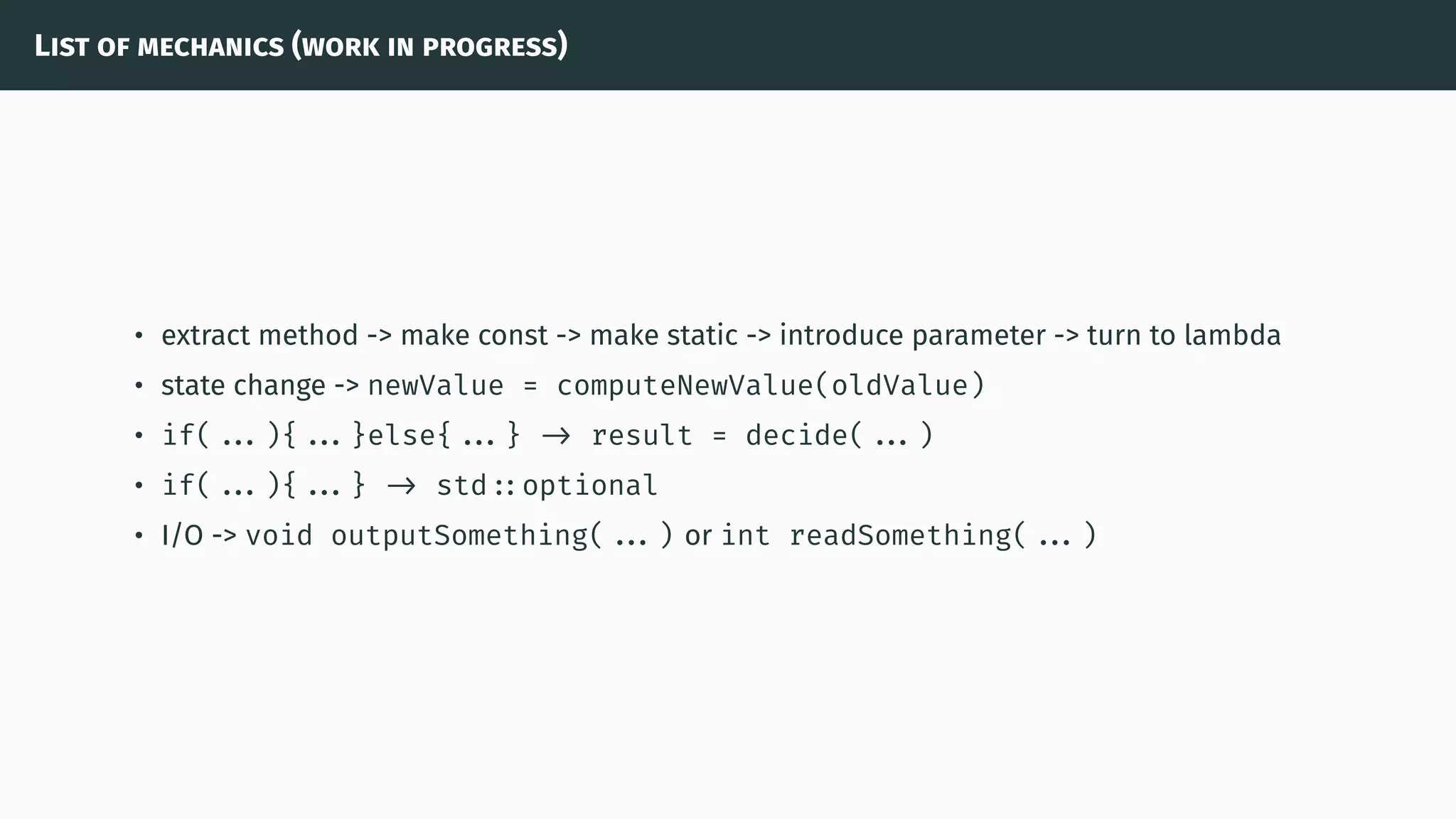
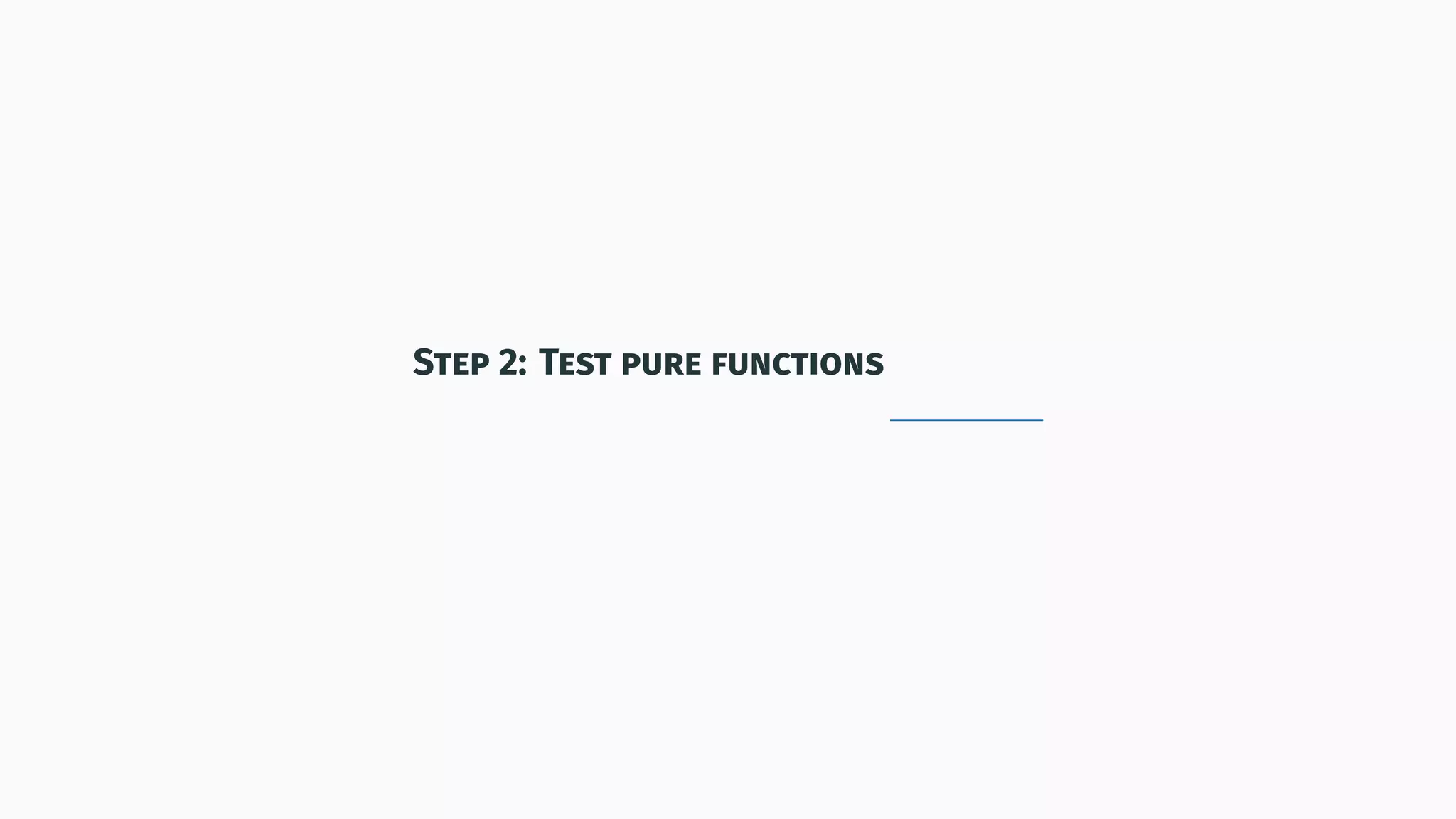
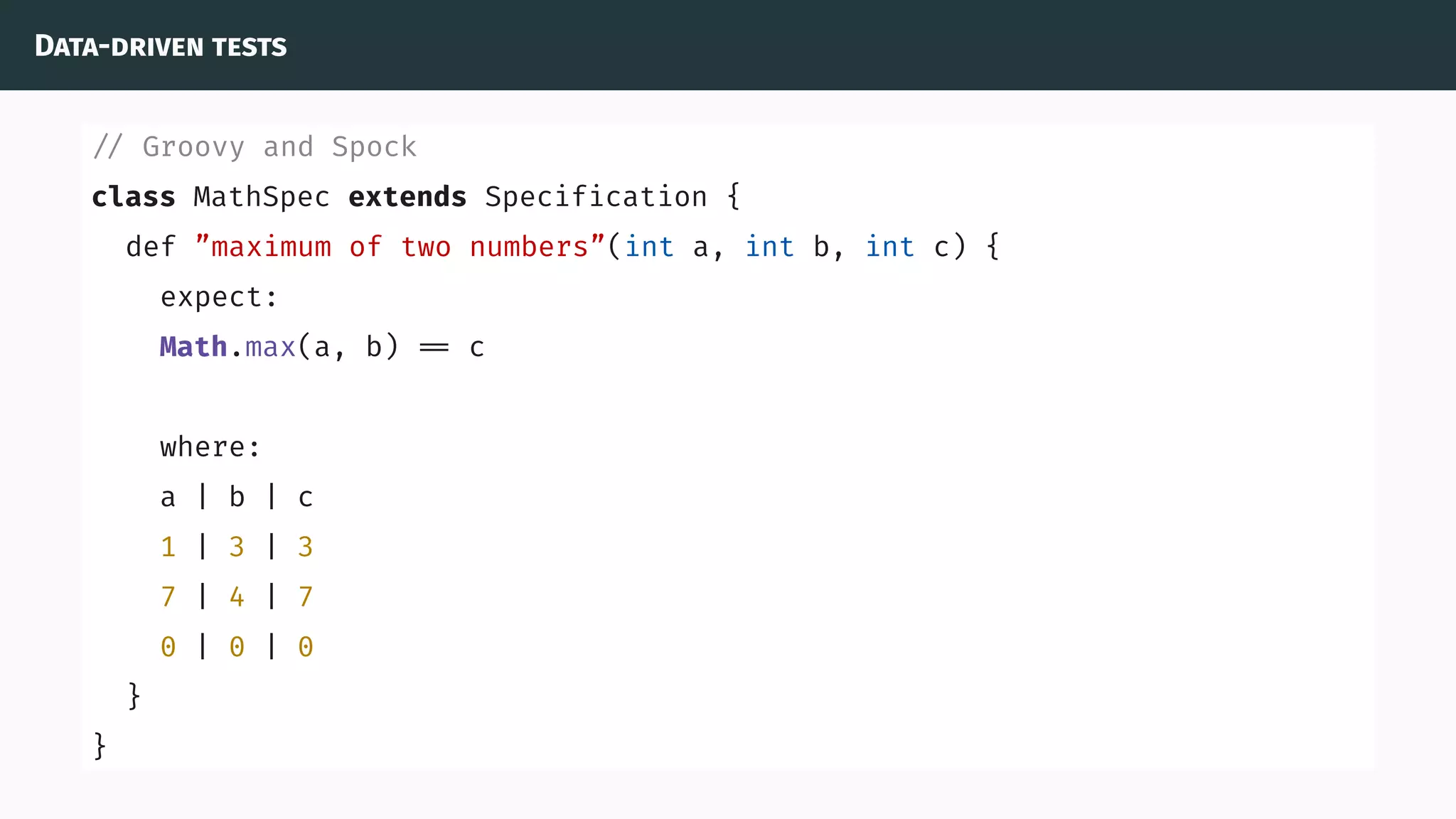
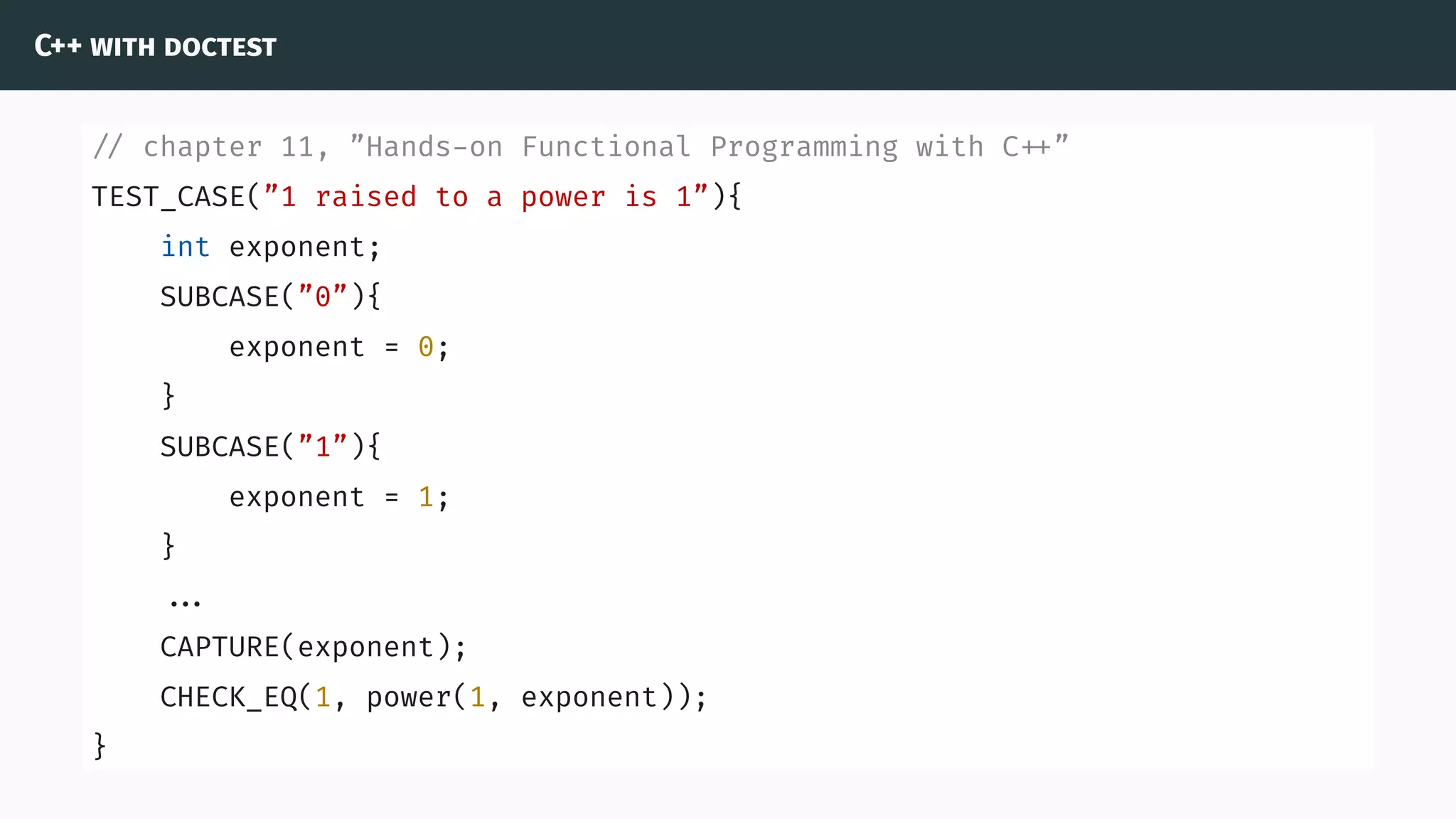
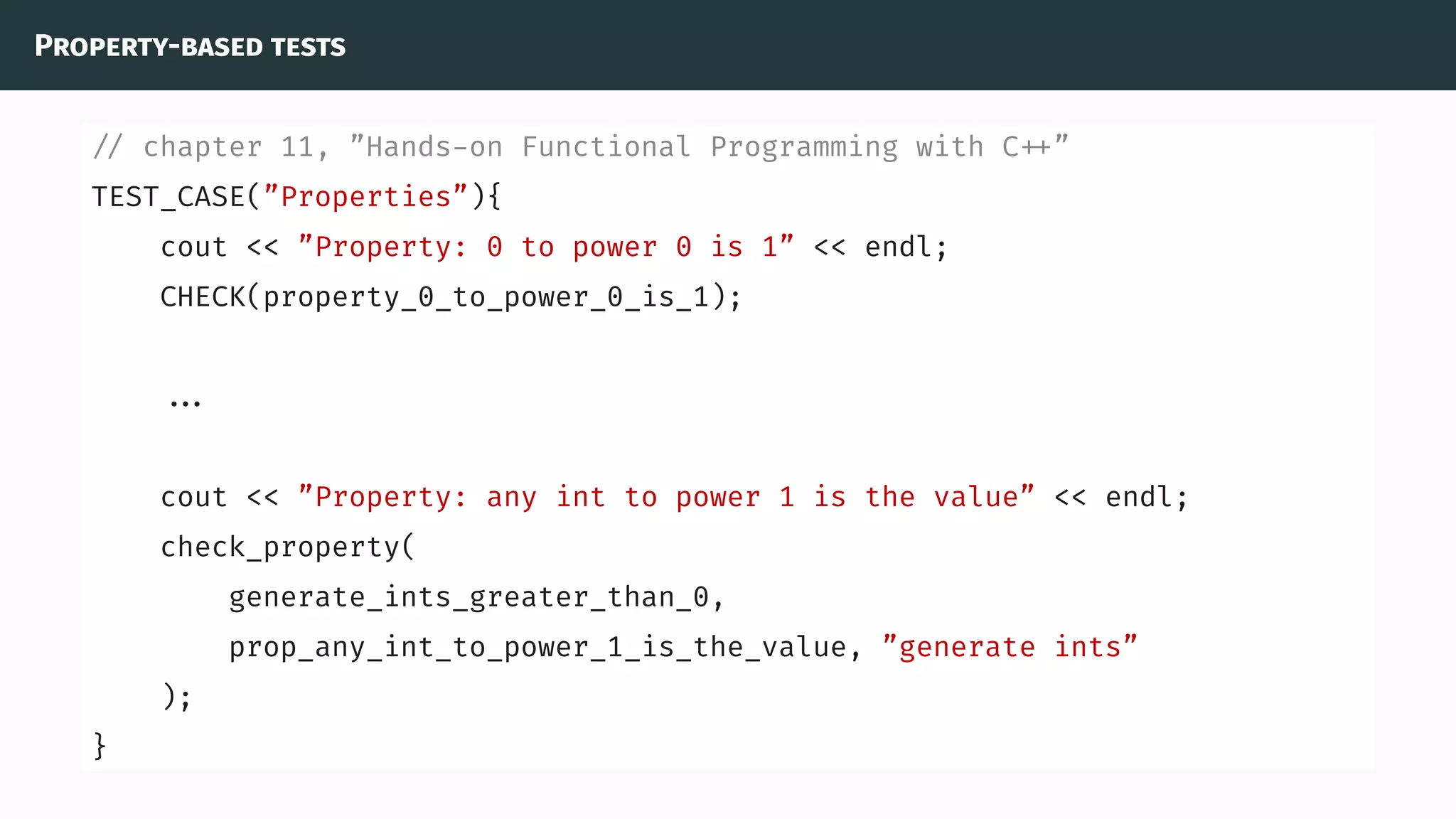
{
return power(base, 1) base;
};](https://image.slidesharecdn.com/refactorlegacycodethroughpurefunctions-200224205309/75/Refactor-legacy-code-through-pure-functions-63-2048.jpg)
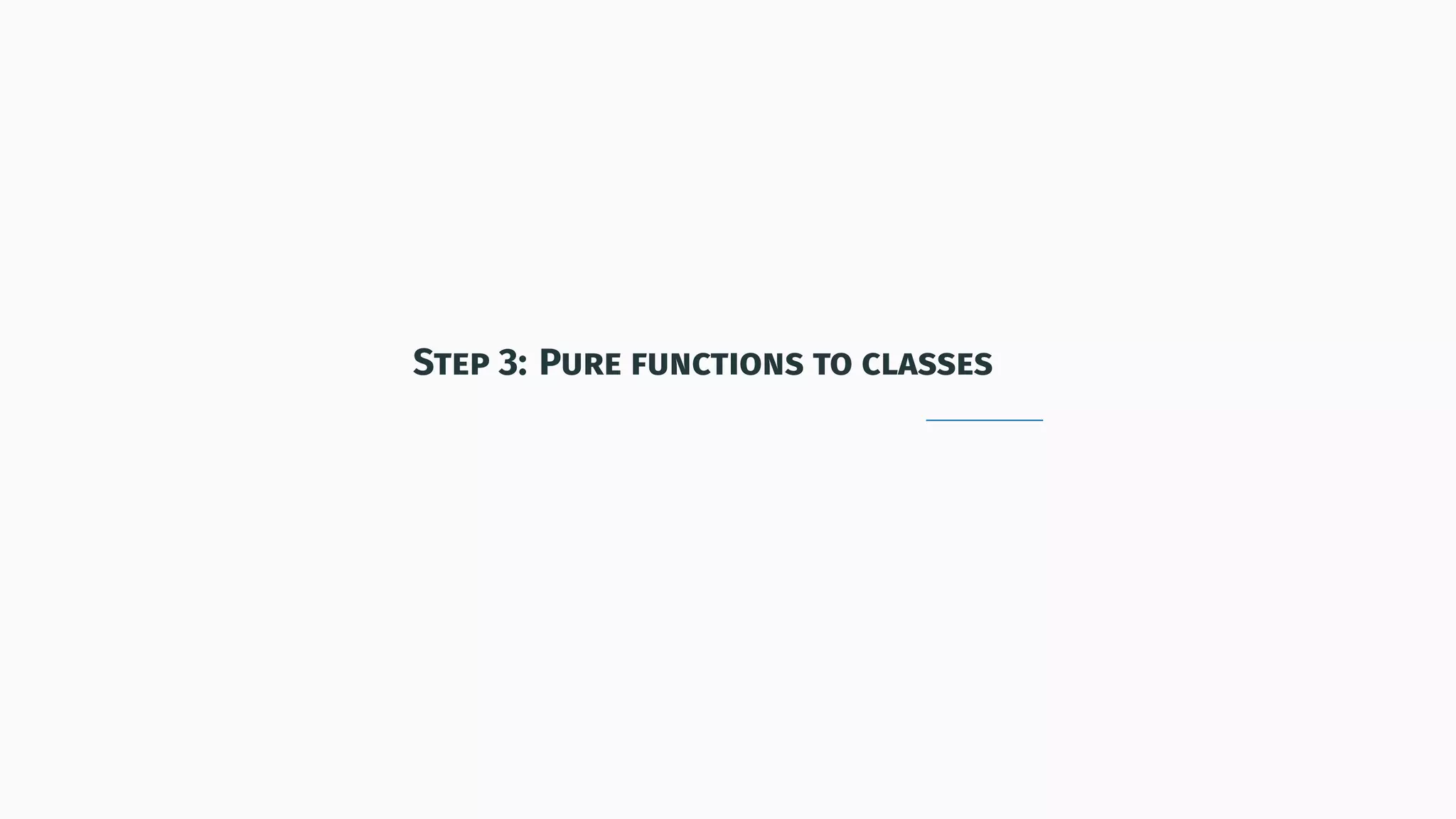
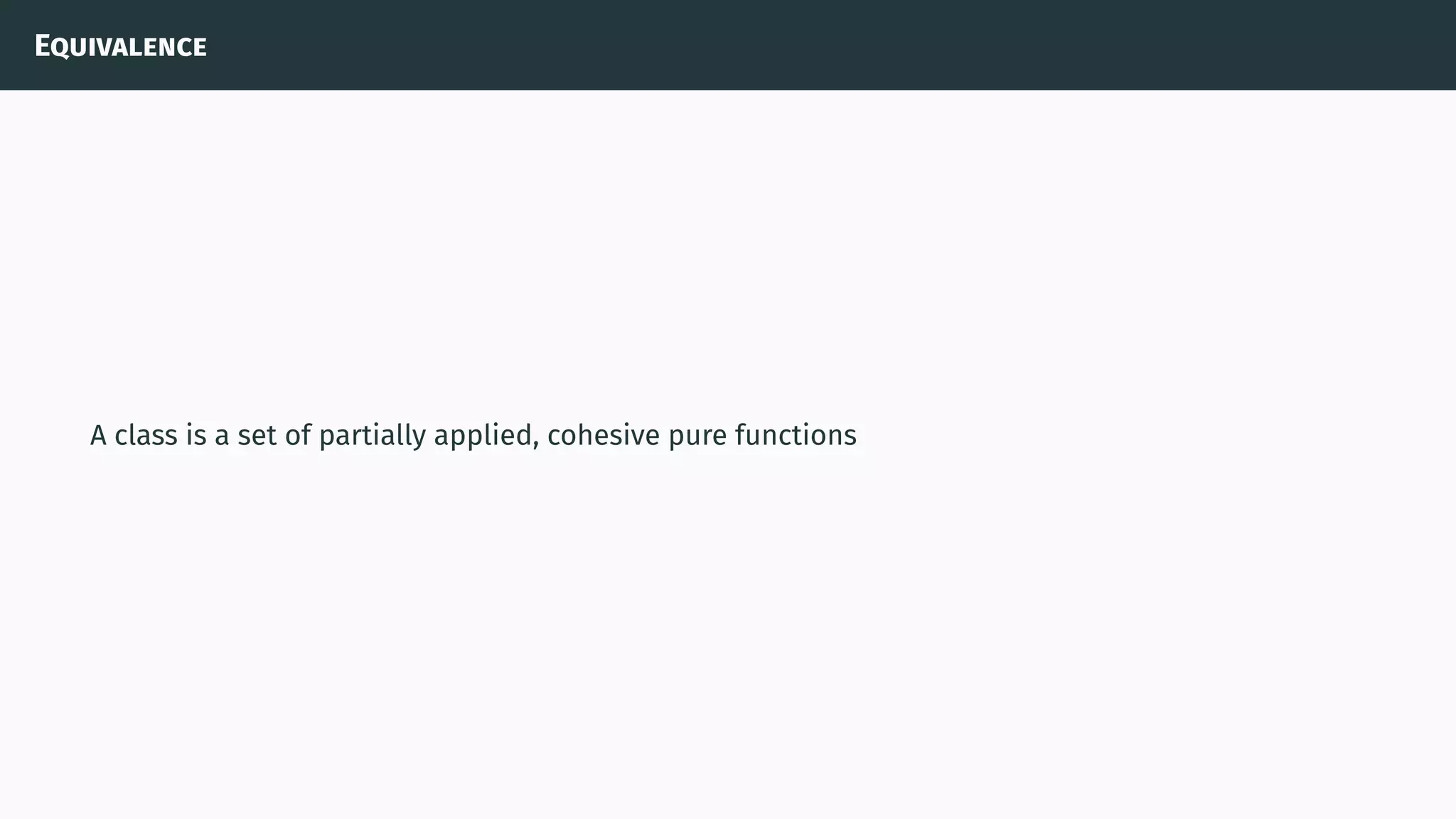
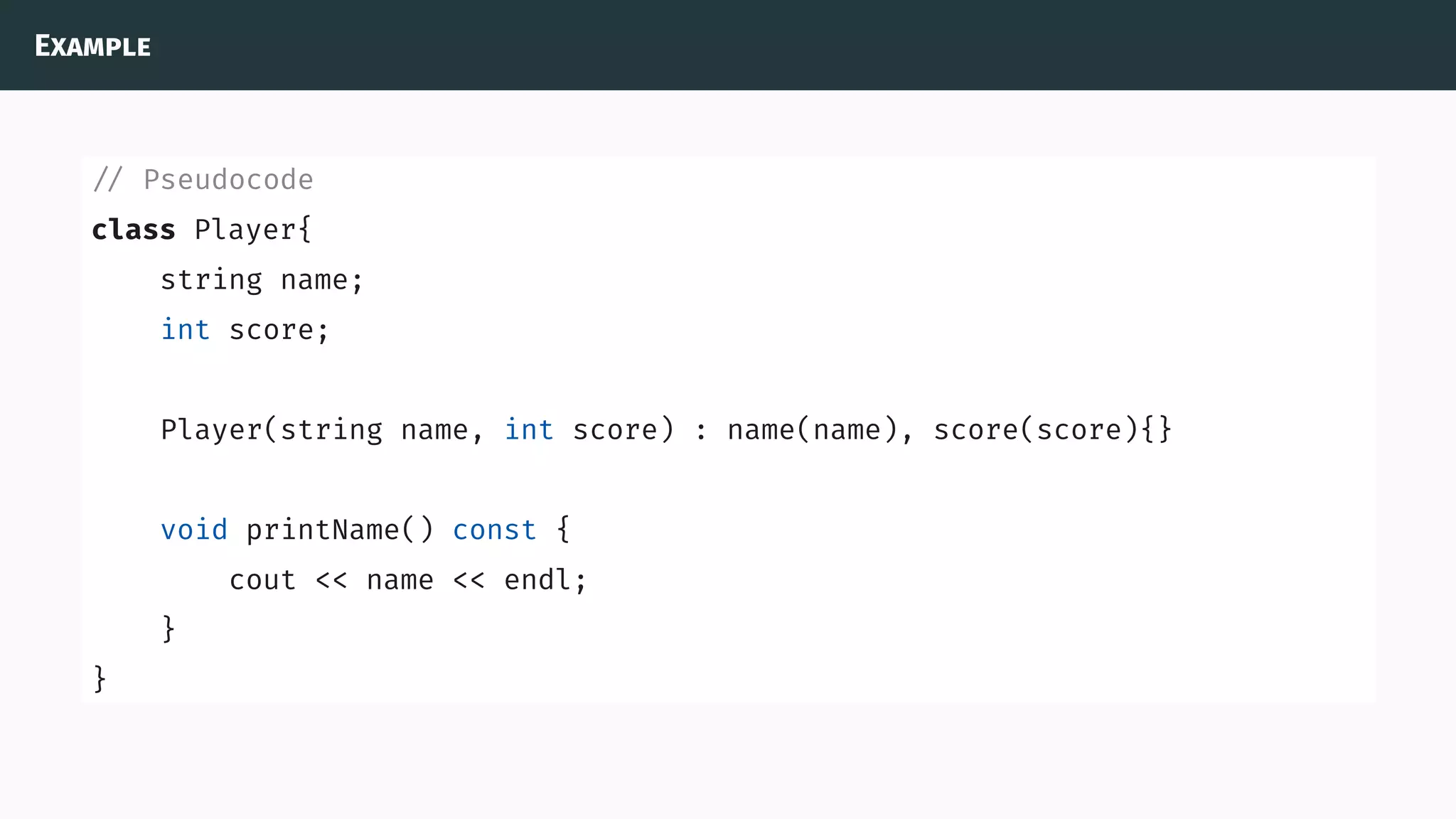
![Equivalent with
auto printName = [string name]() -> void {
cout << name << endl;
}
auto printName = [](string name) -> void {
cout << name<< endl;
}](https://image.slidesharecdn.com/refactorlegacycodethroughpurefunctions-200224205309/75/Refactor-legacy-code-through-pure-functions-67-2048.jpg)
 -> void {
...
}
auto computePlayerScore = []( ...) -> {
...
}](https://image.slidesharecdn.com/refactorlegacycodethroughpurefunctions-200224205309/75/Refactor-legacy-code-through-pure-functions-68-2048.jpg)
 -> {
...
}
auto doSomethingElseWithPlayerNameAndScore =
[](string playerName, int playerScore) -> {
...
}](https://image.slidesharecdn.com/refactorlegacycodethroughpurefunctions-200224205309/75/Refactor-legacy-code-through-pure-functions-69-2048.jpg)
